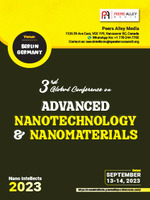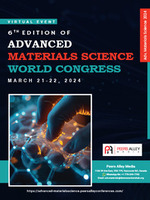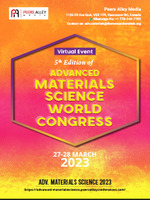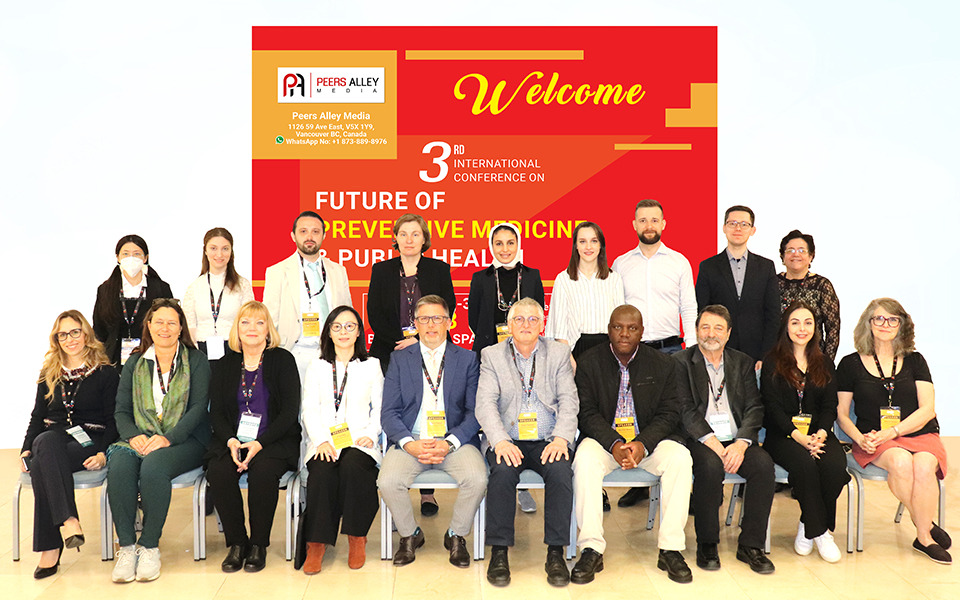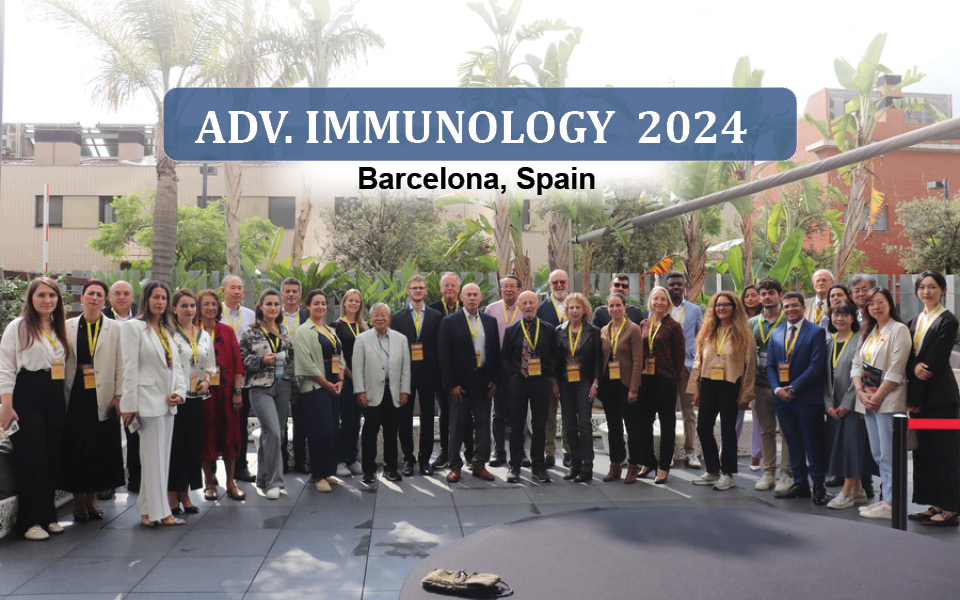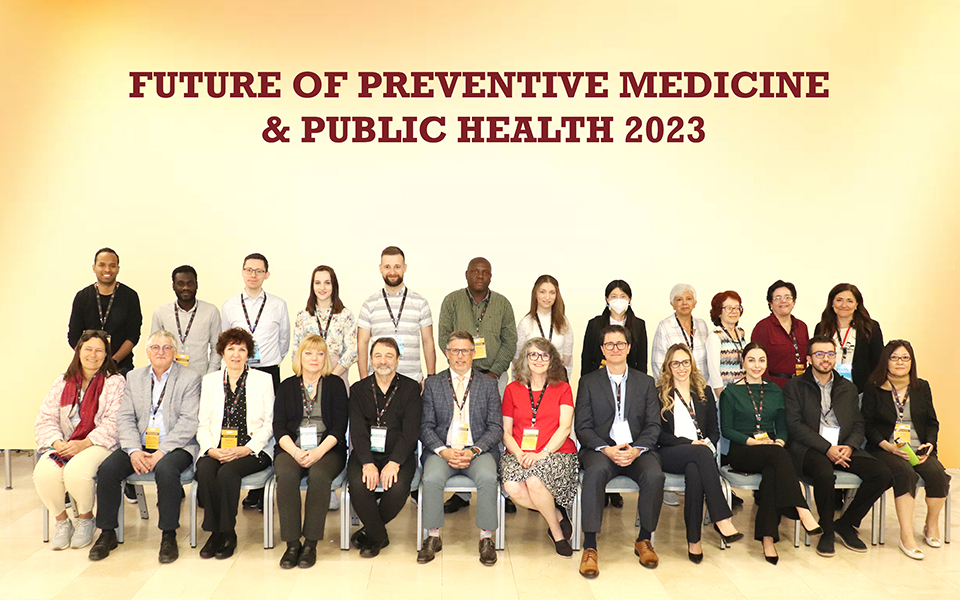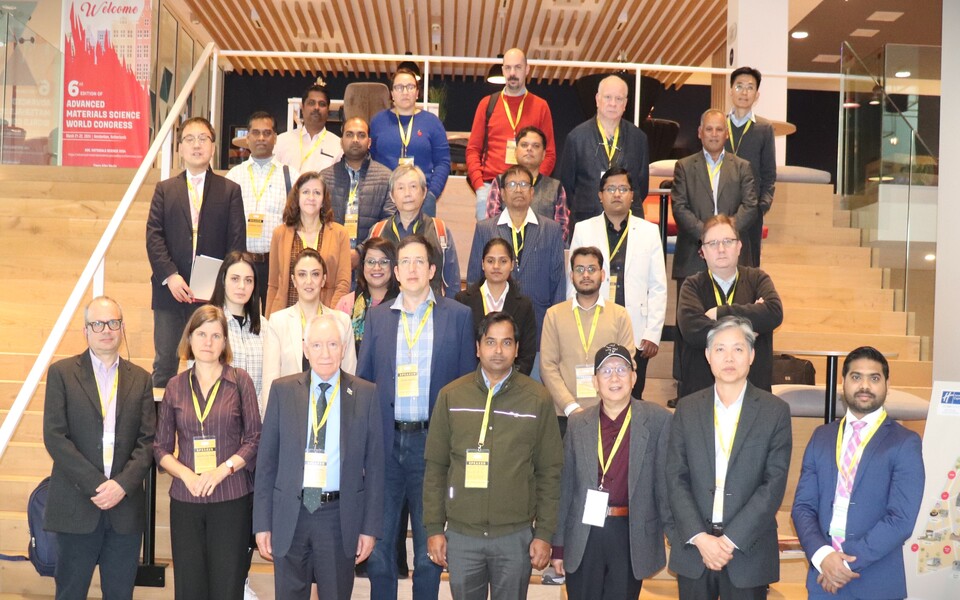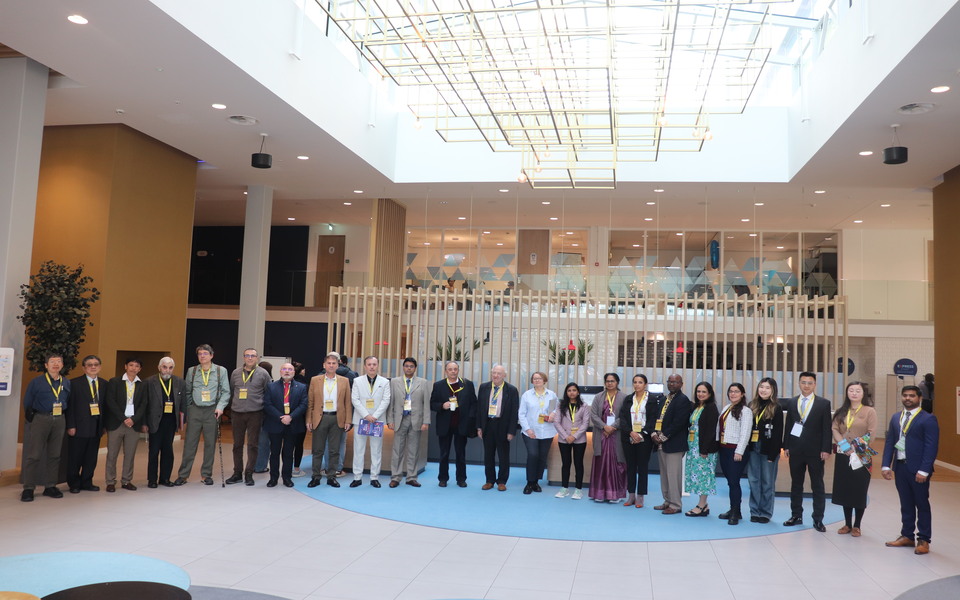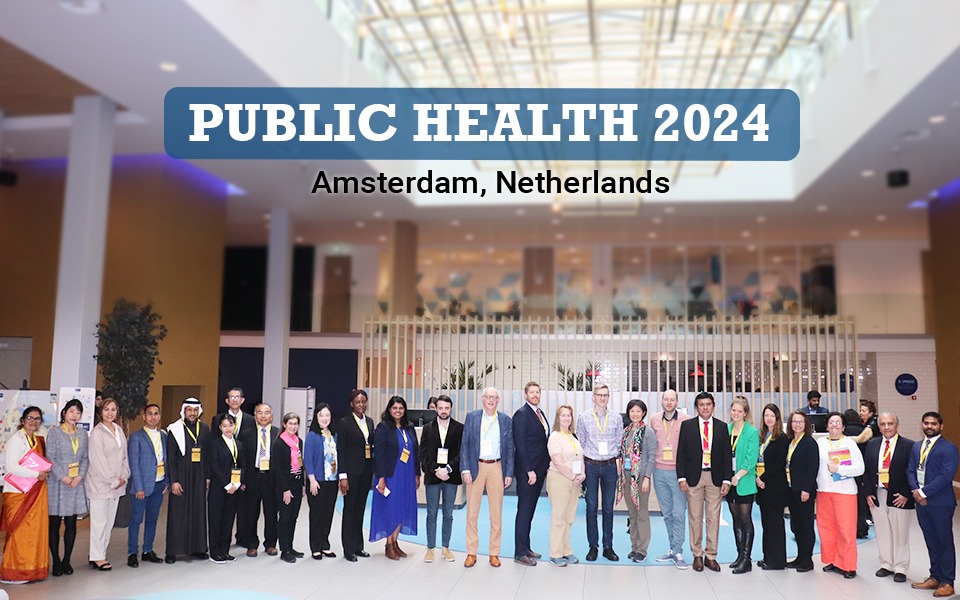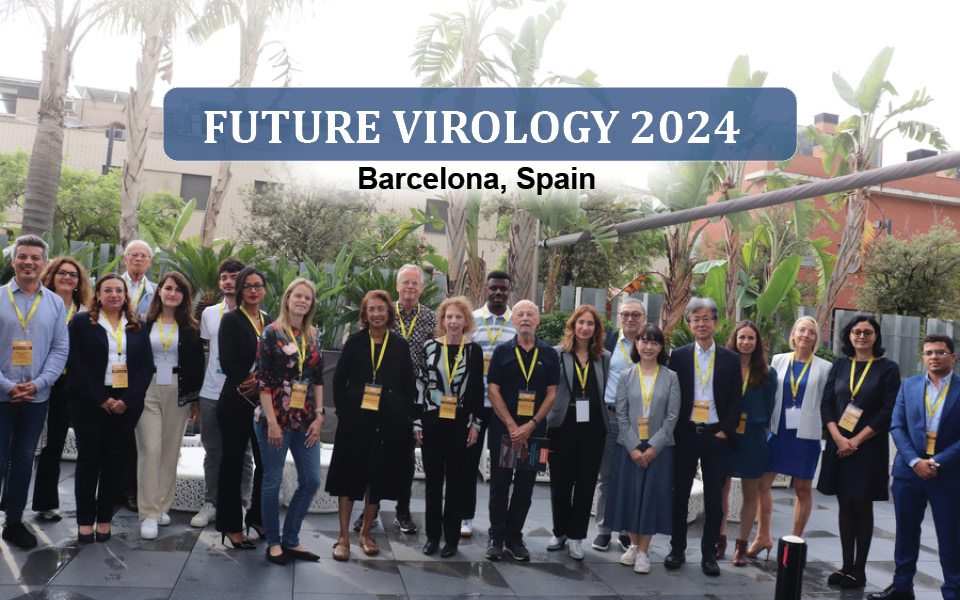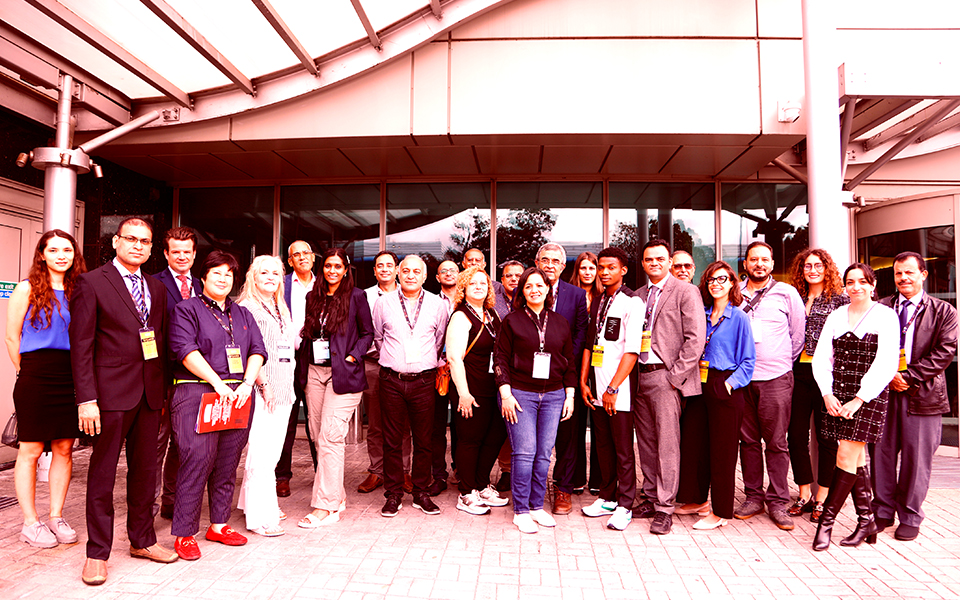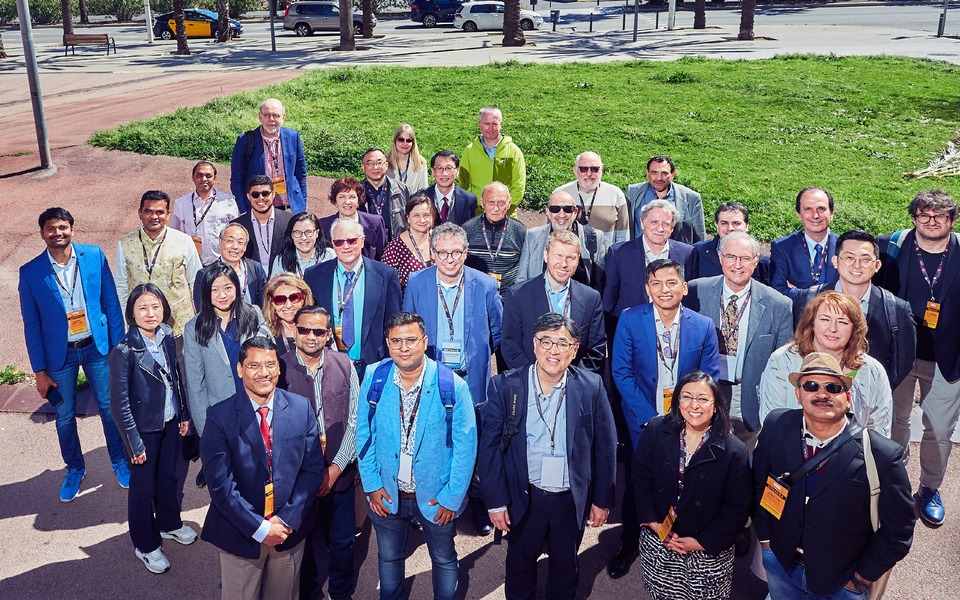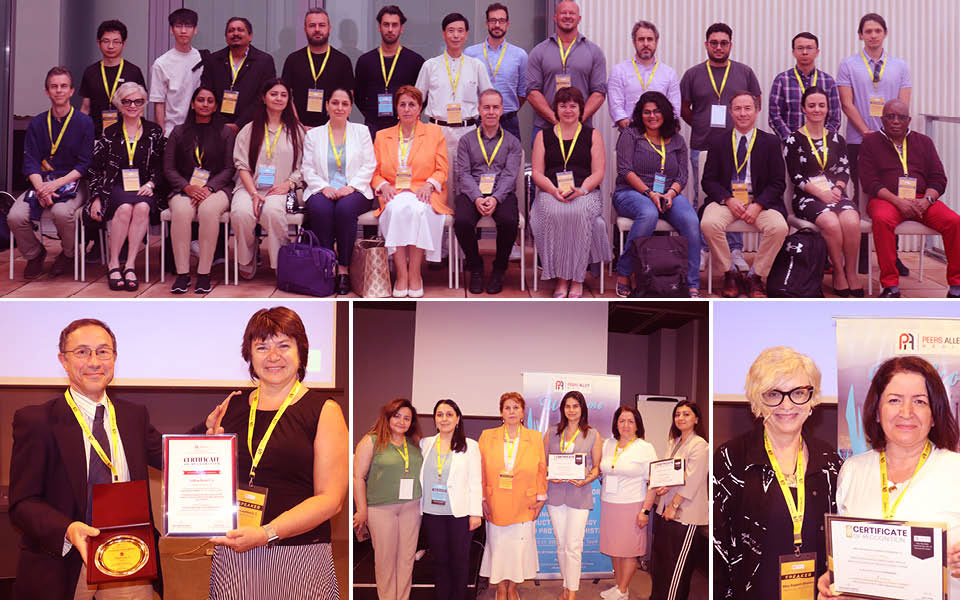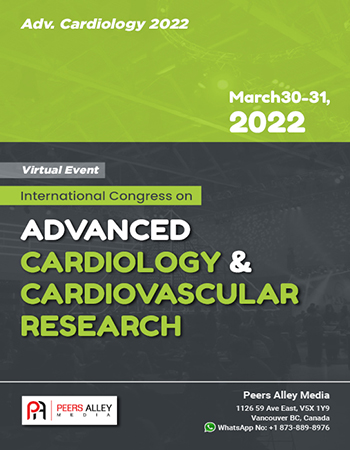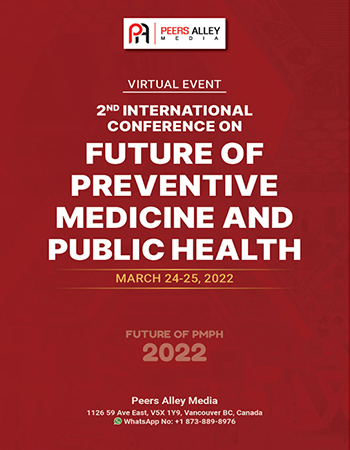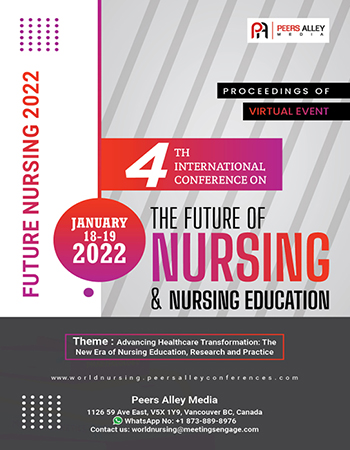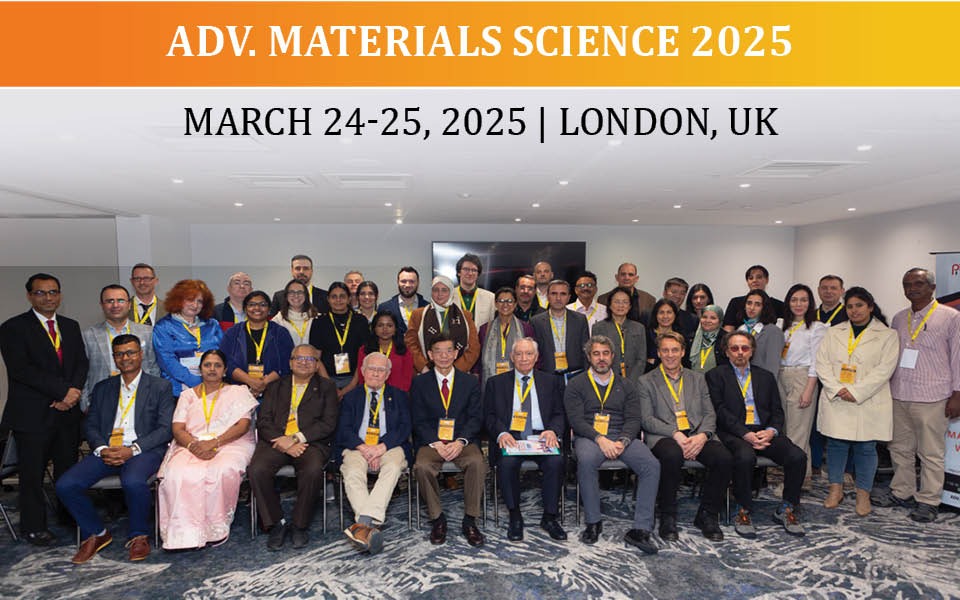
Adv. Materials Science 2025
Peers Alley Media,Canada

Primary goal of attending an international conference is to present a paper to the experts and influencers. It gives you a platform to exchange your interest-related thoughts, paving the way for possible future collaborations.

Use this platform to build connections with an elite group of wise men and women to enhance your intellect. Young entrepreneurs, this is a great platform to connect with your peers.

Knowledge is Power. Knowledge teaches skills. Skills define excellence. Use this platform to become cognizant of your interest area to achieve excellence in your domain.

Attending a conference give you opportunity to get your abstract or paper published in conference proceedings

Meet and greet a myriad of industry professionals and academia experts with common interest. Every meal will be an opportunity to meet and interact with fellow researchers, attendees and experts.

Expand your professional competency and learn useful tips and tricks of your industry in our skill-building workshops.

Explore insights on recent advancements, new equipment, new techniques, and unpublished data, learn from thought-leaders and get to network with a great line up of speakers.

Our exhibits floor offers the attendees with a dynamic display of the latest products with cutting-edge technology.

Investing in you is the best investment. Peers Alley conferences give the patrons with a feeling of the serendipity of real learning, skill development in strategic workshops, networking and start-up opportunities, thus, is value for money.

Attending the conference gives you much needed break from your regular duties. It also allows you to explore new cities, culture and meet new people. You will feel energized and rejuvenated to return to the university and continue with the job after attending the conference.
Conferences are vital forum for academic researchers and business leaders. "It involves multiple presentations, interactive breakout sessions, hands-on product demonstrations and unrivalled networking opportunities".
We have invited some of the world's most sought-after keynote speakers, experts, brand ambassadors, and industry leaders to share their thoughts and ideas with our conference guests.
Register Now
NANO Intellects 2025 brings together a rich diversity of scientists from various universities and industries to share ideas and new perspectives on a wide range of topics related to nanoscience, material science, biotechnology and nanotechnology. This conference is characterized by world-renowned speakers with latest techniques, tools, and the state-of-the-art updates. NANO Intellects 2025 is an exciting opportunity to present the company's new technologies, new products and/or services to a wide international audience.
----------------------------------------------------------------------------------
Nanotechnology Proceedings 
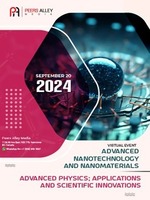
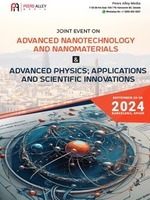


The 5th Global Conference on Advanced Nanotechnology and Nanomaterials (October-27 to 28, 2025 Prague, Czech Republic) offers a superb opportunity to introduce cutting edge research and innovation to the global community. To meet and share ideas with experts in the field and possibly strike up valuable collaborations in this burgeoning field. Nanotechnology/Nanomaterials offer huge benefits for almost every industry, and for the planet's ecosystem, and for the careers of scientists who become early adopters in this field.
I believe that this two-day scientific event, featuring discussions and presentations by world-leading experts, as well as showcasing the latest research by young scientists, will create an ideal blend of knowledge and innovation in the field of nanotechnology and nanomaterials.
I am confident that participants, including delegates, experts, students, researchers, professionals from nano, chemical, and materials industries, policymakers, and healthcare providers, will greatly benefit from the insightful discussions and interactions at this congress, which is designed to foster a warm and collaborative atmosphere.
Your active participation and contributions will undoubtedly contribute to the outstanding success of this congress in advancing all aspects of nanotechnology.
Best Regards,
Philip G. Penketh

University of Texas, USA

Texas A&M University, USA

Mayo Clinic, USA

University of Dundee, UK

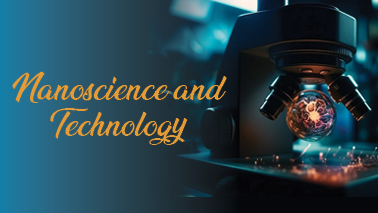
Nanoscience is the study of atoms, molecules, and objects with a size of less than one nanometer. Atoms have a diameter of a few tenths of a manometer, and molecules are usually micrometres in length. Nano Science is a technology that is reduced in size to the nanometer level. It is the study and application of very small objects in all aspects of research, including biology, physics, chemistry, engineering, and materials science. Nanotechnology, on the other hand, generates many of the same challenges that any new technology does, such as concerns about nanoparticles' toxicity and environmental impact, as well as their possible implications on global economies and speculation about various disaster scenarios. Deep ultraviolet lithography, electron beam lithography, focused ion beam machining, nanoimprint lithography, atomic layer deposition, and molecular vapour deposition are examples of nanotechnological techniques, as are molecular self-assembly techniques that use di-block copolymers.
Market Analysis: The global nanotechnology market is expected to reach $51.3 billion in 2019, growing at a CAGR of 14.66 percent from 2020 to 2026 to reach $131 billion by the end of 2026. Medical and life science applications will be the future growth areas - Nanoscale materials have been the primary focus of nanotechnology firms across applications for the past decade. Semiconductors are the most profitable application category in the nanotechnology market, with a market value of $9.7 billion in 2019 and a CAGR of 15.3% from 2020 to 2026. In all of the countries examined, the market is extremely fragmented, with small and medium-sized businesses and institutes playing a significant role.
Tags
Nanotechnology Conferences 2025 Middle East
Nanoscience Conferences
Graphene Conferences
Nanomedicine Conferences 2025 Asia
Nanomaterials Conferences 2025 Asia
Nanotechnology Conferences 2025 USA
Nanoscience Conferences 2025 USA
Nanomedicine Conferences
Nanotechnology Conferences 2025
Nanotechnology Conferences 2025
Materialscience Conferences
Nanomaterials Conferences 2025 USA
Nanoresearch Conferences
Nanomaterials Conferences
Nanoengineering Conferences

Drug delivery is a concept that is closely linked to dosage type and method of administration, with the latter being included in some definitions. Oral, parenteral (injected), sublingual, topical, transdermal, inhaled, rectal, and vaginal are common routes of administration; however, drug delivery is not limited to these routes, and there may be multiple ways to give drugs through each route. Since the introduction of the first controlled-release formulation in the 1950s, research into new delivery systems has increased, although new medication discovery has slowed. The growing cases of chronic and infectious diseases, as well as a better understanding of the pharmacology, pharmacokinetics, and pharmacodynamics of many medications, may be contributing to the increased development of drug delivery systems.
Market Analysis: From US$100.050 billion in 2018, the oral medication delivery market is expected to increase at a CAGR of 6.99 percent to US$150.063 billion by 2025. According to World Bank data, global GDP will have decreased by around 3.5 percent in 2020 as a result of the COVID-19 epidemic. By 2021, several countries' economies have begun to recover and have partially adjusted to pandemic constraints. Vaccine research and development has made significant progress, and several governments, particularly in the United States, have implemented various initiatives to help the economy recover.
Tags
Nanotechnology Events 2025
Nanoresearch Conferences
Nanoscience Conferences 2025
Nanomaterials Conferences 2025 Asia
Nanomaterials Conferences 2025 Europe
Nanotechnology Meetings 2025
Nanomedicine Conferences 2025 USA
Nanotechnology Conferences 2025 Europe
Molecular Nanotechnology Conferences
Nanomedicine Conferences
Nanoengineering Conferences
Nanoscience Conferences 2025 Europe
Nano Drug Delivery Conferences
Nanomedicine Conferences 2025 Europe
Nanomaterials Conferences
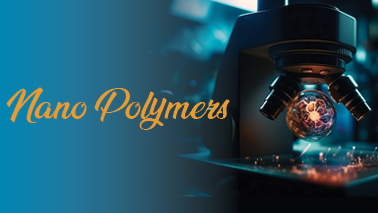
Polymer nanoscience is the study and application of nanotechnology to polymer-nanoparticle matrices, with nanoparticles having at least one dimension of less than 100 nanometers. Silicon nanospheres, also known as nanopolymers, have a size of 40–100 nm and are considerably harder than silicon, with a hardness that falls between between sapphire and diamond. Carbon nanotubes (CNTs) are carbon tubes which have a diameter measured in nanometers. Multi-wall carbon nanotubes (MWCNTs), which are composed of nested single-wall carbon nanotubes, are also known as carbon nanotubes. Although some carbon nanotubes are electrically conductive, others are semiconductors. A normal organic or inorganic bulk phase with a porous structure constitutes nanoporous materials. Nanoporous materials have pore sizes that are typically measured in nanometers. Pores in nanoporous materials typically have such a diameter of 100 nanometers or less.
Market Analysis: After growing at a CAGR of 5.1 % from 2020 to 2025, the global polymers market is expected to reach over $ 750 billion by 2025. Carbon nanotubes are expected to grow at a 14.4% compound annual growth rate (CAGR) from USD 876 million in 2021 to USD 1,714 million in 2022. CNT demand and application are rapidly growing in medical, aerospace and defence, coatings, and other applications, particularly in the Asia-Pacific area. With a CAGR of percent between 2021 and 2027, the global Porous Materials market is expected to reach USD million by the end of 2027.
Tags
Materialscience Conferences
Nanomedicine Conferences 2025
Nanomaterials Conferences
Nanoresearch Conferences
Nanoengineering Conferences
Nanomaterials Conferences 2025 USA
Nanotechnology Conferences 2025 Middle East
Nanoscience Conferences
Nanotechnology Conferences 2025
Nanotechnology Conferences
Nanotechnology Conferences 2025 USA
Nanomaterials Conferences 2025
Nanoscience Conferences 2025 Europe
Molecular Nanotechnology Conferences
Nanoscience Conferences 2025 Asia
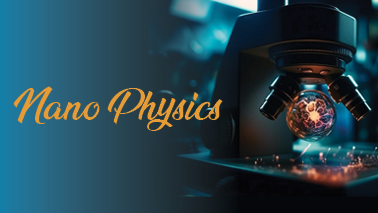
Nanophysics falls halfway between fundamental mechanics' size scales and macroscopic physics, which would be governed by Newton and Einstein's principles. The mechanics of structures and artefacts with dimensions in the nanoscale range, as well as phenomena occurring in nanoseconds, is known as nanophysics. Modern physical approaches, the foundations of which were created in physics labs, have become vital in nanoscience. Nanophysics is a multidisciplinary field that uses theoretical and experimental methods to discover the physical properties of tiny materials. Nanophysics has developed itself into branch of physics, extending into several of the new domains while also playing a critical role in sectors that were previously occupied by engineering, chemistry, or biology.
Market Analysis: During the forecast period, 2021 to 2027, the worldwide Medical Physics market is expected to grow at a significant rate. The market is likely to develop at a steady rate through 2021, due to key players' growing usage of strategies.
Tags
Nanomedicine Conferences 2025 Asia
Nanotechnology Conferences 2025
Nanoscience Conferences 2025 Europe
Nanotechnology Meetings 2025
Nanotechnology Conferences 2025 Europe
Nanoresearch Conferences
Nanoscience Conferences 2025 Asia
Nanotechnology Conferences 2025 Middle East
Nanomaterials Conferences 2025
Nanomaterials Conferences 2025 Asia
Nanomedicine Conferences 2025
Graphene Conferences
Nanoscience Conferences
Nanotechnology Conferences 2025 USA
Molecular Nanotechnology Conferences
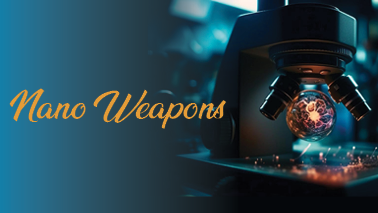
Nanotechnology in warfare is a branch of nanoscience in which molecular systems are designed, manufactured, and generated on a nanoscale (1-100 nm). The application of such technologies, particularly in the areas of military and defence, has cleared the path for future weaponization research. Material science, chemistry, physics, biology, and engineering are just a few of the scientific fields that nanotechnology brings together. Because of the potential benefits or hazards of its use, legislation may need to be regularly regulated to keep up with the dynamic growth and development of nanoscience. Predicting such consequences through regulation would help to "avoid irreversible harm" from using defense-related nanotechnology in warfare. Recent military nanotechnological weapons research has focused on the development of defensive military equipment with the goal of improving existing designs of lightweight, flexible, and durable materials. These cutting-edge designs include features that improve offensive tactics by using sensing devices and manipulating electromechanical qualities.
Market Analysis: According to research reports the global Military Smart Weapons market was valued at 104970 million USD in 2021 and would increase at a CAGR of 9.3% from 2021 to 2027. This study includes vital industry statistics and serves as a significant source of advice and direction for businesses and people interested in the market.
Tags
Nanomaterials Conferences 2025
Nanotechnology Meetings 2025
Nanoscience Conferences 2025
Nanomaterials Conferences
Nanoscience Conferences 2025 USA
Nanoresearch Conferences
Nanotechnology Conferences 2025 USA
Nanotechnology Conferences 2025 Asia
Nanoscience Conferences 2025 Asia
Nanomaterials Conferences 2025 Europe
Nanomedicine Conferences 2025 USA
Nanotechnology Conferences
Nanotechnology Conferences 2025
Nanomaterials Conferences 2025 USA
Nanotechnology Conferences 2025 Europe
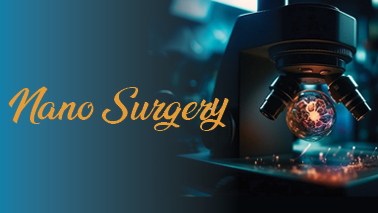
Nanotechnology has played a critical role in all surgical disciplines, with the manufacture of surgical implants and tissue engineering technologies. They improved imaging technology, drug delivery methods, and scaffold fabrication with improved material-cell interaction, all of which are critical in wound healing surgery. Optical tweezers (single-beam gradient force trap) are a powerful instrument that uses laser beams that are highly focused.
Drug distribution and metabolism can be visualised by monitoring their movement. Skin Wound healing is a continuous and overlapping process that is highly coordinated and spatiotemporally regulated. The mechanisms of hemostasis, inflammation, proliferation, and remodelling are all ongoing. Nanomaterials used in wound healing must have intrinsic wound-healing characteristics, as well as the ability to establish an optimum healing microenvironment and act as delivery vehicles for therapeutic drugs.
Market Analysis: The global Nano surgery market is expected to reach $6.84 billion in 2025, with a compound annual growth rate (CAGR) of 14.79 percent from 2020 to 2025. The use of micro- and nanorobots in urological surgical operations, an emphasis on the development of low-cost robotic surgical systems, and rising MedTech research and development expenditures are just a few of the biggest trends.
Tags
Nanomedicine Conferences 2025 USA
Nanotechnology Conferences 2025 USA
Molecular Nanotechnology Conferences
Nanoscience Conferences 2025
Graphene Conferences
Nano Drug Delivery Conferences
Nanoscience Conferences
Nanotechnology Conferences
Nanomaterials Conferences 2025 Asia
Nanomaterials Conferences 2025
Materialscience Conferences
Nanoresearch Conferences
Nanomaterials Conferences 2025 Europe
Nanomedicine Conferences 2025 Europe
Nanotechnology Conferences 2025 Asia
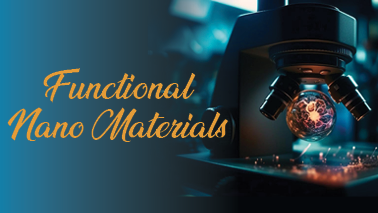
Nanomaterials with a single unit that is between 1 and 100 nanometers in size (in at least one dimension). Nanomaterials research uses advances in materials measurement and synthesis gained in support of microfabrication research to take a materials science-based approach to nanotechnology. Nanostructured materials often exhibit unique optical, electrical, thermo-physical, and mechanical capabilities. Nanomaterials are gradually becoming more industrialized and becoming commodities.
Market Analysis: In 2019, the global nanomaterials market was valued at USD 8.52 billion, with a forecast of USD 9.58 billion by 2020. From 2019 to 2027, the nanomaterials market is predicted to increase at a compound yearly growth rate of 13.1%, reaching USD 22.88 billion.
Tags
Nanotechnology Conferences 2025 Middle East
Nanomaterials Conferences 2025 Asia
Nanoscience Conferences
Nanomaterials Conferences
Nanoscience Conferences 2025 Asia
Materialscience Conferences
Nanotechnology Conferences 2025 Asia
Nanoscience Conferences 2025
Nanoresearch Conferences
Nano Drug Delivery Conferences
Nanotechnology Events 2025
Nanoscience Conferences 2025 Europe
Nanoscience Conferences 2025 USA
Nanotechnology Conferences 2025
Nanotechnology Meetings 2025

Graphene is a carbon allotrope composed up of a single sheet of atoms organised in a honeycomb lattice nanostructure in two dimensions. Because of its outstanding tensile strength, electrical conductivity, transparency, and status as the world's thinnest two-dimensional material, graphene has become a valuable and useful nanomaterial. However, there may be more than one isomer for some n numbers. Fullerenes greatly increased the number of known carbon allotropes, which had previously been limited to graphite, diamond, and amorphous carbon such as soot and charcoal. They've generated a lot of interest, both because of their chemistry and because of their technical applications, particularly in materials science, electronics, and nanotechnology.
Market Analysis:The global graphene market was worth $87.5 million in 2019, and it is expected to increase to $876.8 million by 2027, with a CAGR of 40.2 percent from 2020 to 2027. During the projected period of 2021-2025, the market for Fullerene is expected to grow at a 7.9% CAGR.
Tags
Nanomedicine Conferences 2025 Europe
Nanomedicine Conferences 2025 Asia
Graphene Conferences
Nanotechnology Conferences 2025
Nanoscience Conferences 2025
Nanoresearch Conferences
Nanomaterials Conferences 2025 Europe
Nanomaterials Conferences 2025 USA
Nanotechnology Conferences 2025 USA
Nanotechnology Events 2025
Molecular Nanotechnology Conferences
Nanoengineering Conferences
Nano Drug Delivery Conferences
Nanotechnology Conferences 2025 Asia
Nanoscience Conferences 2025 Europe

Materials science has its roots deep in the Restoration, when academics began to apply analytical reasoning from chemistry, physics, and engineering to old, phenomenological data in metallurgy and mineralogy. The materials paradigm is a way of thinking about the relationships between processing, structure, and attributes. This paradigm is applied in a range of scientific domains, including nanotechnology, biomaterials, and metallurgy, to advance understanding.
Materials science is also an important part of forensic engineering and failure analysis – investigating materials, products, structures or components, which fail or do not function as intended, causing personal injury or damage to property. Materials science and engineering emerged in many ways renaming and/or combining existing metallurgy and ceramics engineering departments; splitting from existing solid state physics research pulling in relatively new polymer engineering and polymer science; recombining from the previous, as well as chemistry, chemical engineering, mechanical engineering, and electrical engineering; and more.
Market Analysis: The global market for material science is expected to reach a value of $6000 million by 2022, with a CAGR of 10.2 percent between 2015 and 2021. The largest market is in North America, followed by Asia Pacific. Due to the re gion's economic recovery and growing awareness about building insulation and energy savings, the Europe market is expected to grow at a stable rate.
Tags
Nanomaterials Conferences 2025 Europe
Graphene Conferences
Nanomaterials Conferences
Nanomedicine Conferences
Nano Drug Delivery Conferences
Nanotechnology Conferences 2025 USA
Molecular Nanotechnology Conferences
Nanoscience Conferences 2025
Nanomaterials Conferences 2025 Asia
Nanotechnology Conferences 2025 Europe
Nanoscience Conferences
Nanotechnology Conferences 2025
Nanomaterials Conferences 2025
Nanoscience Conferences 2025 USA
Nanoresearch Conferences
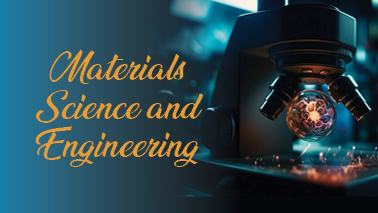
A nanostructure is a structure of intermediate size between microscopic and molecular structures. Nanostructural detail is microstructure at nanoscale. Nanotubes have two dimensions on the nanoscale, i.e., the diameter of the tube is between 0.1 and 100 nm; its length can be far more. Finally, spherical nanoparticles have three dimensions on the nanoscale, i.e., the particle is between 0.1 and 100 nm in each spatial dimension. The terms nanoparticles and ultrafine particles (UFP) are often used synonymously although UFP can reach into the micrometre range. The term nanostructure is often used when referring to magnetic technology. Nanoscale structure in biology is often called ultrastructure.
Market Analysis: In the year 2021, the nanotechnology market in the United States is expected to be worth $13.2 billion. China, the world's second largest economy, is expected to reach a market size of US$5.1 billion by 2026, indicating an 11.2 percent CAGR over the analysed period.
Tags
Nanomaterials Conferences 2025
Nanomaterials Conferences 2025 Europe
Nanoscience Conferences 2025 Asia
Graphene Conferences
Nanotechnology Events 2025
Nanomedicine Conferences 2025 USA
Nanomaterials Conferences
Molecular Nanotechnology Conferences
Nanoscience Conferences 2025
Nanotechnology Conferences 2025 USA
Nanoscience Conferences 2025 USA
Nanotechnology Conferences
Nanoengineering Conferences
Nanotechnology Conferences 2025 Asia
Nanotechnology Conferences 2025
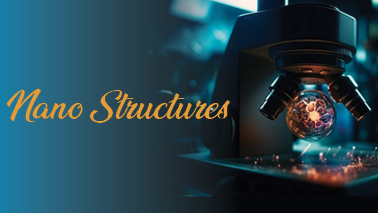
Nanotechnology has the ability to improve energy efficiency across all business sectors and to economically leverage renewable energy production through new technologies and better manufacturing processes.
Nanotechnologies boost the potential of both traditional energy sources (fossil and nuclear) and renewable energy sources such as geothermal, solar, wind, water, tides or biomass. Nanotechnology advancements in the energy sector may have an impact on each component of the value-added chain.
Market Analysis: The global nanotechnology in energy market was valued at $139.7 million in 2020, and is expected to grow to $384.8 million by 2030, with a CAGR of 10.7% from 2021 to 2030.
Tags
Nanoscience Conferences 2025
Nanotechnology Conferences 2025 Europe
Nanoscience Conferences 2025 Europe
Nanotechnology Events 2025
Nanomedicine Conferences 2025
Nanotechnology Conferences
Nanotechnology Conferences 2025
Nanotechnology Meetings 2025
Nanotechnology Conferences 2025 USA
Graphene Conferences
Nanomaterials Conferences 2025 Europe
Nanomedicine Conferences 2025 USA
Nanomaterials Conferences
Nano Drug Delivery Conferences
Nanoscience Conferences 2025 Asia
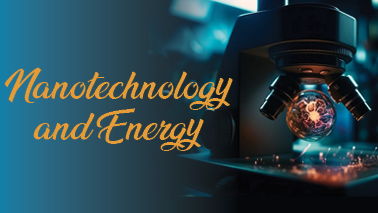
The basis of nanoscience and nanotechnology are nanomaterials. Nanoscience and Nanotechnology is a wide field of research and development that has exploded in popularity in recent years around the world. It has the potential to expand the types of materials and products that can be created, as well as the types and range of functionality that can be accessible. It already has a large commercial influence, which will certainly grow in the future. A collection of substances known as nanoscale materials has at least one dimension of less than a hundred nanometers. Nanomaterials are remarkable because they exhibit unique optical, magnetic, electrical, and other properties at such a small scale. These emergent properties have the potential to have huge implications in industries like industrial machinery and other sectors. In at least two dimensions, nanomaterials have structural sizes lower than 100 nm. These Nanomaterials can be spherical, needle-like, tubes, platelets, and other shapes and structures.
Another important parameter for characterization of Nanomaterials is their chemical composition, which includes practically all substance classes, such as metals/metal oxides, polymers, chemicals, and biomolecules. Nanoparticles tend to cling together in ambient circumstances, forming aggregates and agglomerates.
Market Analysis: The Nanotechnology Market was valued at $65.1 billion in 2020, and it is expected to increase at a CAGR of 16.9% between 2021 and 2026. Nanotechnology's being used in drug development will grow at an 18.5 percent compound annual rate (CAGR) through 2026.
Tags
Nanomedicine Conferences 2025 USA
Nanoengineering Conferences
Nanomaterials Conferences 2025 Asia
Nanomaterials Conferences
Nanomedicine Conferences
Molecular Nanotechnology Conferences
Materialscience Conferences
Nanotechnology Meetings 2025
Nanotechnology Conferences 2025 USA
Nanoscience Conferences 2025 Asia
Nanotechnology Conferences 2025 Asia
Nanomaterials Conferences 2025 USA
Nano Drug Delivery Conferences
Nanomedicine Conferences 2025 Europe
Nanotechnology Conferences 2025 Europe
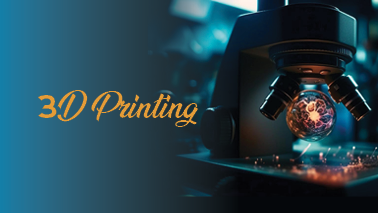
The construction of a three-dimensional object from a CAD model or a digital 3D model is referred as 3D printing or additive manufacturing. The term "3D printing" can focus on a number of procedures in which material is deposited, combined, or solidified under computer control to create a three-dimensional object, often layer by layer. 3D printing techniques were considered only suitable for the production of functional or aesthetic prototypes, and rapid prototyping was a more appropriate term at the time. As of 2021, the most common 3D printing process is fused deposition modelling (FDM), which uses a continuous filament of a thermoplastic material.
4D Printing
Health sector
Food industry
Fashion industry
Firearm industry
Education sector
Transportation industry
Aerospace regulation
Multi-material 3D printing
Gun legislation and administration
Cultural heritage and museum-based digital twin
Market Analysis: The global 3D printing market is valued USD 13.78 billion in 2020, and it is expected to grow at a 21.0 percent compound annual growth rate (CAGR) from 2021 to 2028. In 2020, 2.1 million 3D printers were sold around the world, with 15.3 million units predicted to be shipped by 2028.
Tags
Nanomedicine Conferences
Nanoresearch Conferences
Nanomedicine Conferences 2025
Nanotechnology Conferences 2025 Europe
Nanomaterials Conferences 2025 USA
Nanomaterials Conferences 2025 Europe
Nanomedicine Conferences 2025 USA
Nanoscience Conferences
Nanotechnology Events 2025
Nanoscience Conferences 2025 USA
Nanotechnology Conferences 2025 USA
Nanomaterials Conferences 2025 Asia
Nanomedicine Conferences 2025 Europe
Molecular Nanotechnology Conferences
Nano Drug Delivery Conferences

Carbon nanotubes are graphene tubes that have a diameter measured in nanometers. Single-wall carbon nanotubes with sizes in the nanometer range are usually referred to as carbon nanotubes. Carbon nanotubes with a single wall are an allotrope of carbon which lies halfway between fullerene cages and flat graphene. Carbon nanotubes are also known as multi-wall carbon nanotubes, that are made up of nested single-wall carbon nanotubes that are weakly bound together in a tree ring-like structure by van der Waals interactions. Although some carbon nanotubes are conductive, others are semiconductors. Because of their nanostructure and the strength of the bonds between carbon atoms, they have exceptional tensile strength and thermal conductivity. All achiral single-wall carbon nanotubes are either tiny or moderate band gap semiconductors, with the exception of a small group of metallic nanotubes.
Armchair Carbon Nanotubes
Zigzag Carbon Nanotubes
Chiral Carbon Nanotubes
Market Analysis: The carbon nanotubes market is valued around USD 2.6 billion in 2021, and it is projected to grow at a CAGR of around 20% over the next 5 years (2021-2026).
Tags
Nanotechnology Meetings 2025
Nanoscience Conferences 2025
Nanomedicine Conferences 2025
Nanoengineering Conferences
Molecular Nanotechnology Conferences
Nanomedicine Conferences
Nanomaterials Conferences
Nanomaterials Conferences 2025
Nanomaterials Conferences 2025 USA
Nanoscience Conferences 2025 Europe
Nanotechnology Conferences 2025
Nano Drug Delivery Conferences
Nanotechnology Conferences 2025 USA
Nanomaterials Conferences 2025 Asia
Nanotechnology Conferences 2025 Asia

A fuel cell is an electrochemical cell that utilizes a pair of redox reactions to convert the chemical energy of a fuel and an oxidising agent into electricity. Fuel cells differ from most batteries in that those who require a constant supply of fuel and oxygen to maintain the chemical reaction, whereas chemical energy in a battery is variety of different areas from metals and their ions or oxides that are already present in the battery, with the exception of flow batteries. As long as fuel and oxygen are accessible, fuel cells can produce electricity forever. There are many different types of fuel cells, but they all have had an anode, a cathode, and an electrolyte that allows ions to travel between the two sides of the fuel cell, most often positively charged hydrogen ions (protons). Fuel cells produce water, heat, and, depending on the fuel source, very small amounts of nitrogen dioxide and other emissions in addition to electricity. A fuel cell's energy efficiency varies from 40 to 60 percent, but if waste heat is captured in a cogeneration scheme, efficiencies of up to 85 percent can be obtained.
Solid acid fuel cell (SAFC)
Alkaline fuel cell (AFC)
High-temperature fuel cells
Electric storage fuel cell
Fuel cell electric vehicles (FCEVs
Phosphoric acid fuel cell (PAFC)
Proton-exchange membrane fuel cells (PEMFCs)
Market Analysis: From an estimated value of USD 263 million in 2020, the worldwide fuel cells market is expected to reach USD 848 million by 2025, growing at a CAGR of 26.4 cent over the forecast period.
Tags
Graphene Conferences
Nano Drug Delivery Conferences
Molecular Nanotechnology Conferences
Nanotechnology Conferences 2025 Asia
Nanoscience Conferences
Materialscience Conferences
Nanotechnology Conferences 2025 Middle East
Nanotechnology Conferences 2025
Nanomaterials Conferences 2025
Nanotechnology Conferences
Nanoscience Conferences 2025 Asia
Nanotechnology Events 2025
Nanomedicine Conferences 2025
Nanotechnology Conferences 2025 USA
Nanomaterials Conferences 2025 Asia
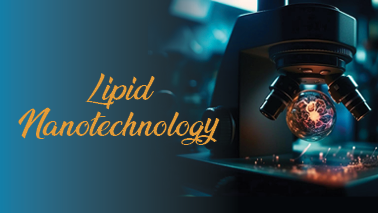
Lipid nanoparticles (LNPs) are lipid-based nanoparticles. They are a novel pharmaceutical formulation and a novel pharmaceutical drug delivery method. LNPs were initially approved as a medication delivery vehicle in 2018 for the siRNA drug Onpattro. Some COVID-19 vaccines that use RNA vaccine technology coat the fragile mRNA strands with PEGylated lipid nanoparticles as their delivery vehicle, making LNPs more well-known in late 2020. A solid lipid nanoparticle is usually spherical, with a diameter ranging from 10 to 1000 nanometers. A solid lipid core matrix in solid lipid nanoparticles can solubilize lipophilic compounds. Surfactants help to keep the lipid core stable.
Gene Therapy
Cancer Therapy
Diagnostics Delivery
Protein and Peptide Delivery
Antioxidant and Vitamin Delivery
Overcoming the Blood-Brain Barrier
Market Analysis: The global lipids market was valued at USD 6.5 billion in 2017 and is expected to grow at a 9.4% CAGR from 2017 to 2022, hitting $11.2 billion in 2022.
Tags
Nanotechnology Conferences 2025 Europe
Nanomedicine Conferences 2025 USA
Nanoresearch Conferences
Nanomaterials Conferences 2025
Nanoscience Conferences 2025
Nanoscience Conferences 2025 USA
Nanomedicine Conferences 2025 Europe
Nanomaterials Conferences 2025 Asia
Molecular Nanotechnology Conferences
Nanotechnology Events 2025
Nanomedicine Conferences 2025 Asia
Nanotechnology Conferences 2025 USA
Nanotechnology Meetings 2025
Nano Drug Delivery Conferences
Graphene Conferences
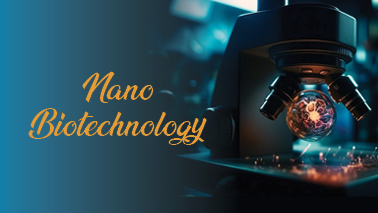
The interaction of nanotechnology and life is referred to as nanobiotechnology, bionanotechnology, and nanobiology. Since bionanotechnology and nanobiotechnology are relatively new fields, they serve as cover terms for a variety of related technologies. The most common objectives in nanobiology are the application of nanotools to relevant medical/biological problems and the refining of these applications. Another main goal of nanotechnology is to provide new tools for medicinal and biological applications, such as peptoid nanosheets.
New nanotools are frequently made by enhancing the applications of current nanotools. Nanobiology researchers are also interested in imaging natural biomolecules, biological membranes, and tissues. The use of cantilever array sensors and the application of nanophotonics for manipulating molecular processes in living cells are two further nanobiology issues.
Nanomedicine
Nanotoxicology
Molecular Engineering
Molecular Nanotechnology
DNA Nanotechnology
Green Nanotechnology
Hazards Regulation
Market Analysis In the year 2021, the Nanobiotechnology market in the United States is expected to be worth US$18.4 billion. China, the world's second largest economy, is expected to reach a projected market size of US$17.6 billion by 2027, with a compound annual rate of 6.6 percent from 2020 to 2027.
Tags
Nanoscience Conferences 2025 Europe
Nanoscience Conferences 2025
Nanotechnology Conferences 2025 Middle East
Nanotechnology Conferences 2025 USA
Nanomaterials Conferences 2025 Asia
Nanoscience Conferences 2025 USA
Nanomedicine Conferences 2025 USA
Nanoengineering Conferences
Graphene Conferences
Nanomedicine Conferences
Nanomedicine Conferences 2025 Europe
Nanotechnology Conferences 2025
Nanotechnology Events 2025
Nanoscience Conferences
Nanomedicine Conferences 2025 Asia
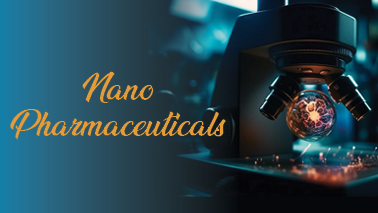
Nanopharmaceuticals are a new area in which the size of a drug particle or a therapeutic delivery system is regulated at the nanoscale. Nanotechnology is used in medical therapeutics to produce them. The difficulty of delivering the appropriate dose of a particular active drug to a specific disease location has long been a problem in the pharmaceutical industry. They are expected to change treatment strategies by enabling selective delivery of drugs and therapeutic molecules to be directed. They are expected to be incredibly helpful, particularly in the treatment of cancer.
Bio- Availability
Improve Drug Solubility
Delivery to various sites of action
Market Analysis: The Nano Pharmaceutical Market is expected to grow at the highest CAGR during the forecast period 2021-2027, with a market value of USD million in 2020 and USD million by the end of 2027.
Tags
Materialscience Conferences
Nanomaterials Conferences 2025 USA
Nanomedicine Conferences 2025 Europe
Nanomaterials Conferences 2025 Asia
Nanotechnology Meetings 2025
Molecular Nanotechnology Conferences
Graphene Conferences
Nanotechnology Conferences 2025 Middle East
Nanotechnology Conferences 2025 Europe
Nanoscience Conferences
Nanotechnology Conferences 2025
Nanotechnology Conferences 2025
Nanoresearch Conferences
Nanotechnology Conferences 2025 USA
Nanoscience Conferences 2025 Europe
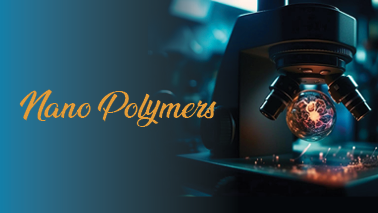
Nanotechnology aims at developing and combine nanostructured materials in order to generate innovative products for the benefit of mankind. Specifically, interest in nanostructured polymers, or nanopolymers, is growing rapidly because they provide a number of options for building nanoscale parts, self-assembly structures at various scales, new properties due to downscaling, and new phase transitions. Nanopolymers are obviously going to be a big part of future nanotechnology manufacturing. To explore the extensions of existing techniques as well as build new ways, a classification of nanopolymers is required.
Self-Assembled Nanostructures
Number of Nanoscale Dimensions
Non Self-Assembled Nanostructures
Market Analysis: The market for polymer nanocomposites was worth $5,276 million in 2015 and is expected to reach $11,549 million by 2022, with a CAGR of 10.9 percent from 2016 to 2022.
Tags
Nanoscience Conferences
Molecular Nanotechnology Conferences
Nanoengineering Conferences
Nanoscience Conferences 2025 Europe
Nanomaterials Conferences 2025 Asia
Nanomedicine Conferences
Nanomaterials Conferences 2025
Nanotechnology Conferences 2025
Nanoscience Conferences 2025 USA
Nanotechnology Conferences 2025 USA
Graphene Conferences
Nanoresearch Conferences
Nanoscience Conferences 2025 Asia
Nanomaterials Conferences 2025 Europe
Nanomedicine Conferences 2025 Asia
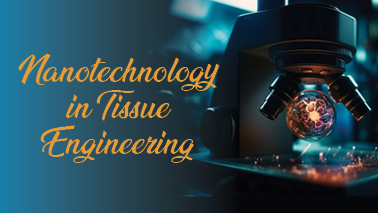
Tissue engineering and regenerative medicine are two applications of nanotechnology now in use. As a result, tissue can be engineered to improve cell adhesion, growth, and differentiation by using these nanostructures. Nanotechnology does have the ability to facilitate the design and production of biocompatible scaffolds at the nanoscale, as well as the spatiotemporal release of biological factors similar to native extracellular matrix to control cellular response, and eventually the creation of implantable tissues.
Gas Foaming
Electrospinning
Nanofiber Self-Assembly
Textile Technologies
CAD/CAM Technologies
Laser-Assisted Bioprinting
Emulsification Freeze-Drying
Thermally Induced Phase Separation
Solvent Casting and Particulate Leaching
Market Analysis: Tissue Engineering's global market, which was estimated to be worth US$11 billion in 2020, is expected to grow to US$26.8 billion by 2027, with a CAGR of 13.5 percent between 2020 and 2027.
Tags
Nanomedicine Conferences 2025 Asia
Nano Drug Delivery Conferences
Nanomaterials Conferences 2025
Nanotechnology Conferences 2025 Europe
Nanoscience Conferences 2025
Nanomaterials Conferences
Nanoscience Conferences 2025 Asia
Graphene Conferences
Materialscience Conferences
Nanoengineering Conferences
Nanomedicine Conferences 2025
Nanotechnology Conferences 2025 Asia
Nanomedicine Conferences 2025 Europe
Nanoresearch Conferences
Nanotechnology Events 2025
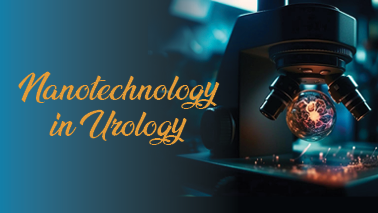
Nanotechnology is a rapidly growing field of urology research with a wide range of therapeutically relevant uses in diagnostics and therapies. Nanotechnology is a revolutionary technology that will have a huge impact on urology research and treatment. Nanomedicine will assist urologists in greater understanding disease pathophysiology at the molecular level. Almost all nanotechnology applications, such as nanosensors, nanoparticles, nanorobots, and nanolasers, will have a substantial impact on the diagnosis and treatment of urological diseases.
Bladder Reconstruction
Treatment of Genitourinary Cancer
Prostate-Specific Antigen Screening
Imaging of Genitourinary Malignancies
Treatment of Overactive Bladder/Interstitial Cystitis
Tissue Sealant Technology and Robotic Surgery
Market Analysis: The global urology devices market is projected to expand at a CAGR of 4.1 percent from USD 38,005.6 million in 2021 to USD 46,408.2 million in 2026.
Tags
Nanomaterials Conferences 2025 Europe
Nano Drug Delivery Conferences
Nanomaterials Conferences 2025 USA
Nanoscience Conferences 2025 USA
Nanoscience Conferences 2025 Europe
Nanomaterials Conferences 2025 Asia
Graphene Conferences
Nanotechnology Conferences 2025
Nanomedicine Conferences 2025
Nanoscience Conferences 2025
Nanotechnology Meetings 2025
Materialscience Conferences
Nanoscience Conferences 2025 Asia
Nanomedicine Conferences
Nanotechnology Conferences 2025 Middle East
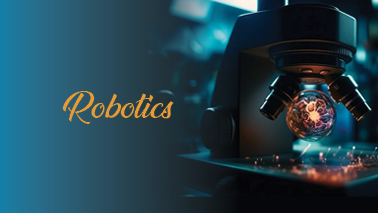
Robotics is a branch of computer science and engineering that is interdisciplinary. Robotics is the study of the design, manufacture, operation, and use of robots. Robotics seeks to create devices that can support and help humans. Mechanical engineering, electrical engineering, information engineering, mechatronics, electronics, bioengineering, computer engineering, control engineering, software engineering, mathematics, and other subjects are all integrated into robotics. Robotics is the study of building devices that can take the place of humans and mimic their actions. Robots can be employed in a variety of settings and for a variety of purposes, but many are now used in hazardous environments, manufacturing processes, or in situations where humans will be unable to live.
Nanorobots
Military Robots
Industrial Robots
Swarm Robotics
Construction Robots
Agricultural Robots
Medical Robots
Domestic Robots
Autonomous Drones
Sports Field Line Marking
Market Analysis: The global robotics market was valued at USD 27.73 billion in 2020 and is expected to reach USD 74.1 billion by 2026, registering a CAGR of 17.45 percent.
Tags
Nanotechnology Conferences 2025 Asia
Nanoscience Conferences
Nanomaterials Conferences 2025 USA
Nanoscience Conferences 2025
Nano Drug Delivery Conferences
Nanomedicine Conferences
Nanomedicine Conferences 2025 Europe
Nanomedicine Conferences 2025
Nanotechnology Conferences 2025
Graphene Conferences
Nanomaterials Conferences
Nanomedicine Conferences 2025 USA
Materialscience Conferences
Nanotechnology Meetings 2025
Nanotechnology Conferences 2025 USA
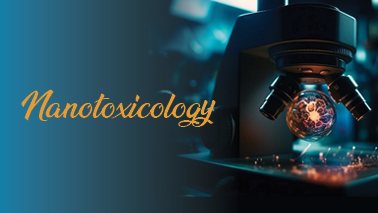
Particle toxicology has a subspecialty named nanotoxicology. Nanomaterials appear to have toxicity effects that are unusual and not seen in larger particles, and these smaller particles may pose a significant threat to the human body due to their ability to move with a much larger degree of freedom, while the human body is designed to attack larger particles rather than nanoscale particles.
Nanoelectronics
Biodistribution
Nanometrology
Molecular nanotechnology
Routes of administration
Green nanotechnology
Mechanisms of toxicity
Market Analysis: The global in-vitro toxicology testing market was valued at USD 22.7 billion in 2020, and it is expected to increase at a CAGR of 10.7% from 2021 to 2028.
Tags
Nanotechnology Conferences
Nanotechnology Meetings 2025
Nanomedicine Conferences 2025 Asia
Nanotechnology Conferences 2025 Middle East
Nanoscience Conferences 2025 Asia
Graphene Conferences
Nanomaterials Conferences 2025
Nanomaterials Conferences 2025 USA
Nano Drug Delivery Conferences
Nanotechnology Events 2025
Nanomaterials Conferences 2025 Europe
Nanoscience Conferences 2025 Europe
Nanomedicine Conferences 2025 USA
Nanoscience Conferences 2025 USA
Nanotechnology Conferences 2025 USA
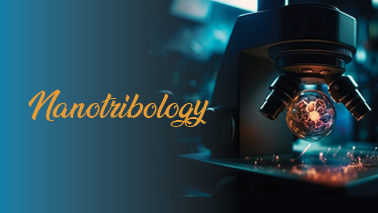
Nanotribology is a branch of tribology that studies friction, wear, adhesion, and lubrication at the nanoscale, where atomic interactions and quantum effects are significant. Characterizing and modifying surfaces for scientific and technological purposes is the aim of this subject. Friction can be reduced or enhanced more strongly than macroscopic lubrication and adhesion by changing the topology of surfaces at the nanoscale; this is referred as superlubrication and superadhesion. Friction and wear problems in micro- and nanomechanical systems, which are crucial due to the extremely high surface volume ratio, can be solved by coating moving parts with super lubricant coatings. Nanotribological approaches, on the other hand, offer a way to solve adhesion issues.
Scanning Tunneling Microscope (STM)
Atomic-Force Microscope (AFM)
Surface Forces Apparatus, (SFA)
Quartz crystal microbalance (QCM)
Market Analysis: The global high-performance tribology market is expected to reach an estimated $446.2 million by 2025 with a CAGR of 4.2% from 2019 to 2025.
Tags
Nanomedicine Conferences 2025
Molecular Nanotechnology Conferences
Nanomaterials Conferences 2025 Europe
Nanotechnology Conferences 2025
Nanotechnology Conferences 2025 Europe
Nanoengineering Conferences
Nanomaterials Conferences
Nanotechnology Conferences 2025 Asia
Nanotechnology Conferences
Nanotechnology Conferences 2025
Nanoscience Conferences 2025 Asia
Nanoscience Conferences 2025 USA
Nano Drug Delivery Conferences
Nanoscience Conferences
Nanomaterials Conferences 2025 USA
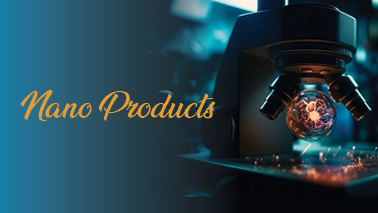
Many of the benefits of nanotechnology are based on the ability to alter material structures at extremely small scales to achieve specific features, greatly expanding the materials science toolkit. Materials can be made stronger, lighter, more durable, more reactive, sieve-like, or better electrical conductors using nanotechnology, among other things.
Nanoelectronics
Nanocoatings
Nanoplasmonics
Nanosensors
Graphene Batteries
Food and Agriculture
Nanotechnology in Furniture
Nanotechnology in Space
Nanotechnology in Cosmetics
Detection of foodborne illnesses
Nanotechnology in the Automotive Industry
Nanotechnology in the Cement Industry
Nanotechnology in Displays
Nanotechnology in sports equipment: The game changer
Market Analysis: In 2021, the global Nano Products market is valued 18504.45 millions of dollars, and it is expected to increase at a CAGR of 2.22 percent from 2020 to 2027.
Tags
Nanoengineering Conferences
Nanotechnology Conferences 2025 Asia
Nanotechnology Conferences
Materialscience Conferences
Nanotechnology Conferences 2025 Middle East
Nanoscience Conferences 2025 Europe
Nanomedicine Conferences 2025 Europe
Nanomedicine Conferences
Nano Drug Delivery Conferences
Nanomaterials Conferences 2025
Nanomaterials Conferences 2025 USA
Nanotechnology Conferences 2025
Nanotechnology Conferences 2025
Nanomaterials Conferences 2025 Asia
Nanoscience Conferences 2025
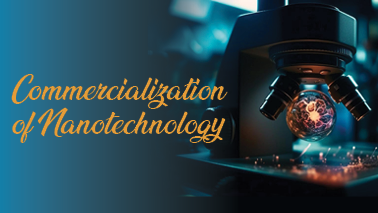
Nanotechnologies' emerging and potential commercial applications have the potential to significantly advance, if not completely revolutionise, several elements of medical practise and product creation. Drug delivery, diagnostic imaging, clinical diagnostics, nanomedicines, and the use of nanomaterials in medical devices are all fields where nanotechnology is already having an effect. Biomedical devices, home appliances, batteries, industrial lubricants, computers, cameras, food and beverage, clothing, cosmetics, fashion, and manufacturing just are a few of the industries that use nanotechnology.
Nanolayers
Fullerenes or Dendrimers
Metal Oxide Nanopowders, Compound Semiconductors and Alloys
Nanowires and Carbon Nanotubes (Nanorods)
Market Analysis: From 2021 to 2030, the global nanotechnology market is expected to grow at a CAGR of 36.4 percent, from $1.76 billion in 2020 to $33.63 billion in 2030.
Tags
Nanotechnology Conferences
Nanoresearch Conferences
Nanoscience Conferences
Nanomedicine Conferences 2025 Europe
Nanoscience Conferences 2025 Asia
Nanomaterials Conferences
Nanoscience Conferences 2025 Europe
Nanotechnology Conferences 2025
Nanoscience Conferences 2025
Nanotechnology Conferences 2025 Middle East
Nanomaterials Conferences 2025 Europe
Nanotechnology Meetings 2025
Nanomedicine Conferences
Nanotechnology Conferences 2025
Nanotechnology Conferences 2025 USA
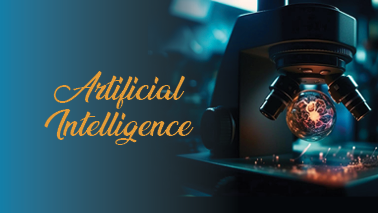
Artificial intelligence (AI) relates to intelligence demonstrated by machines instead of natural intelligence displayed by animals such as humans. Since its beginnings as an academic study in 1956, artificial intelligence has gone through multiple phases of optimism, disappointment, and funding loss, followed by new approaches, success, and renewed funding. The many sub-fields of AI research are based on particular aims and the use of specific techniques. Reasoning, knowledge representation, planning, learning, natural language processing, sensing, and the ability to move and manipulate objects are all traditional AI research goals. Human intelligence "can be so precisely described that a machine can be made to simulate it," according the field's creators. This generates philosophical discussions about the mind and the ethics of creating artificial intelligence that is human-like. Since antiquity, myth, fiction, and philosophy have all tried to address these issues. AI, with its enormous potential and power, has also been suggested as an existential threat to humanity in science fiction and futurology.
Artificial Narrow Intelligence (ANI)
Artificial General Intelligence (AGI)
Artificial Super Intelligence (ASI)
Market Analysis: The global artificial intelligence market is expected to grow at a compound annual growth rate (CAGR) of 28.4 percent from $40.17 billion in 2020 to $51.56 billion in 2021.
Tags
Graphene Conferences
Nanotechnology Conferences 2025 USA
Nanoresearch Conferences
Materialscience Conferences
Nanoscience Conferences 2025 USA
Nanomaterials Conferences 2025
Nanomedicine Conferences 2025 Europe
Nanomedicine Conferences 2025 Asia
Nanomaterials Conferences 2025 Europe
Nanomedicine Conferences
Nanoscience Conferences 2025
Nanotechnology Conferences 2025 Middle East
Molecular Nanotechnology Conferences
Nanoscience Conferences
Nanoengineering Conferences
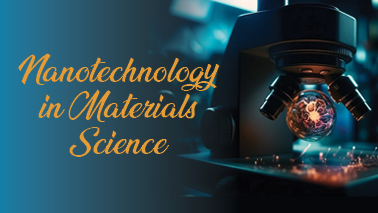
The traditional use of nanotechnology in cancer therapeutics has been to improve chemotherapy pharmacokinetics and reduce cytotoxic effects by selectively targeting and delivering anticancer medicines to cancerous tissue. Cancer nanotechnology is a subclass of nanotechnology that focuses on the use of nanomaterials and nanotechnology methods to diagnose and cure cancer. Nanomedicine, in theory, allows higher therapeutic doses to be used by packaging pharmaceuticals and delivering them through the body directly to diseased cells to limit collateral damage. Nanomedicine holds great promise for treating cancer in children in a safe way.
Chemotherapy
Hormone Therapy
Radiation Therapy
Stem Cell Transplant
Targeted Therapy
Immunotherapy to Treat Cancer
Biomarker Testing for Cancer Treatment
Market Analysis: The global cancer therapeutics market was worth $98,900 million in 2021, and it is expected to grow to $180,193 million by 2026, with a CAGR of 7.7% from 2019 to 2026.
Tags
Nanoscience Conferences 2025 Asia
Nanotechnology Conferences 2025 Asia
Nanotechnology Conferences 2025 Middle East
Nanomedicine Conferences
Nanomaterials Conferences 2025 USA
Nanoscience Conferences 2025 USA
Nanotechnology Events 2025
Nanoscience Conferences 2025 Europe
Nanomaterials Conferences 2025 Europe
Nanoengineering Conferences
Nanotechnology Conferences
Molecular Nanotechnology Conferences
Nanomaterials Conferences
Nanotechnology Conferences 2025
Nanomedicine Conferences 2025 Europe
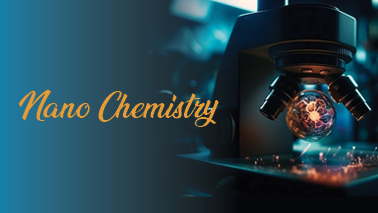
The combination of chemistry and nanoscience is known as nanochemistry. Nanochemistry is concerned with the production of building blocks that are influenced by size, surface, form, and defect characteristics. Nanochemistry has applications in chemical, materials, and physical sciences, as well as engineering, biology, and medicine. The core concepts of nanochemistry and other nanoscience topics are the same, but the applications of those concepts differ. In general, nanochemistry has nothing to do with a compound's atomic structure. Rather, it's about alternative approaches to transforming materials into problem-solving solutions.
Chemistry is concerned primarily with the degrees of freedom of atoms in the periodic table, but nanochemistry has introduced new degrees of freedom that influence material behaviour. Carbon nanomaterials such as carbon nanotubes (CNT), graphene, and fullerenes, which have received interest in recent years due to their extraordinary mechanical and electrical properties, can be made via nanochemical processes. The specific surface features that appear on the nanoscale are referred to as nanotopography. Nanotopography is commonly used in industry for electrics and artificially manufactured surface characteristics.
Market Analysis: In 2021, the global Nano-chemicals market was worth 18504.45 million dollars, and it is expected to increase at a CAGR of 2.22 percent from 2020 to 2027.
Tags
Nanomaterials Conferences 2025 USA
Nanoengineering Conferences
Nanotechnology Conferences 2025 Europe
Nanoscience Conferences 2025
Nanomedicine Conferences
Nanomedicine Conferences 2025
Nanoscience Conferences 2025 Europe
Nanotechnology Meetings 2025
Nanomaterials Conferences
Nano Drug Delivery Conferences
Nanotechnology Conferences 2025 Asia
Nanotechnology Conferences 2025
Nanotechnology Conferences
Nanoresearch Conferences
Nanoscience Conferences 2025 Asia
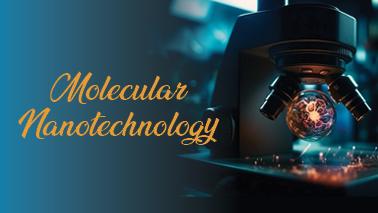
Molecular nanotechnology (MNT) is a technology that uses mechanosynthesis to build structures to complex, atomic specifications. MNT would combine physical principles established by biophysics, chemistry, other nanotechnologies, and life's molecular machinery with systems engineering principles used in modern macroscale factories. In molecular nanotechnology, the goal is to balance molecular processes in positionally controlled locations and orientations to achieve desired chemical reactions, and then to build systems by assembling the reactions' products.
Medical nanorobotics or nanomedicine, a subject pioneered by Robert Freitas in numerous books and papers, would be one of the most important uses of MNT. At the very least, the ability to design, create, and deploy large numbers of medical nanorobots would allow for the quick elimination of disease and the safe and painless recovery from physical trauma. Medical nanorobots may also make it much easier to fix genetic defects and help people live longer lives. Medical nanorobots, on the other hand, could be used to augment natural human skills.
Market Analysis: The global market for nanobiotechnology is expected to increase at a compound annual growth rate (CAGR) of 12.2 percent from $38.5 billion in 2021 to $68.4 billion in 2026. This investigation includes all of the key viable nanobiotechnologies that are now being used in diverse industries.
Tags
Nanoscience Conferences 2025 Asia
Nanomaterials Conferences
Nanomaterials Conferences 2025 Europe
Nanoscience Conferences 2025 USA
Nanomedicine Conferences 2025 Asia
Materialscience Conferences
Nanotechnology Conferences 2025
Nanomedicine Conferences 2025 Europe
Nanoscience Conferences 2025 Europe
Nanotechnology Conferences 2025
Molecular Nanotechnology Conferences
Nanomedicine Conferences 2025 USA
Nanotechnology Conferences 2025 USA
Graphene Conferences
Nanomaterials Conferences 2025 Asia
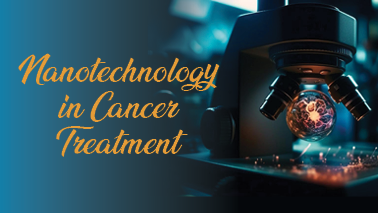
The uses of nanotechnology in cancer treatment offers creating number of exciting possibilities, including the possibility of destroying cancer tumors with minimal damage to healthy tissue and organs and also detects and eliminates of cancer cells before they form tumors.
• Delivering Gene Therapy
• Nano-enabled Immunotherapy
• Delivering Chemotherapy
• Delivering or Augmenting Radiotherapy
Tags
Nanotechnology Conferences
Molecular Nanotechnology Conferences
Nanomaterials Conferences 2025 Europe
Nanomedicine Conferences 2025 USA
Nanomedicine Conferences 2025
Nano Drug Delivery Conferences
Nanomaterials Conferences
Nanomedicine Conferences 2025 Europe
Nanomaterials Conferences 2025
Graphene Conferences
Nanomaterials Conferences 2025 USA
Nanotechnology Conferences 2025 Europe
Nanotechnology Events 2025
Nanomaterials Conferences 2025 Asia
Nanotechnology Conferences 2025 Middle East
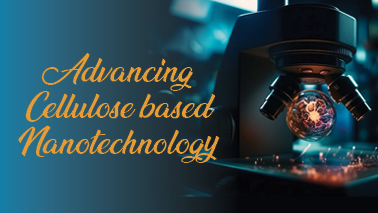
The structure of the cellulose source and facilitate access to its microstructure, mechanical, chemical, or enzymatic process treatments are being used to produce cellulose nanoparticles. The extraction is usually more efficient when a mix of these processes is used. Nanotechnology has applications in almost every economic sector and enables for the development of new enabling science with significant commercial potential. Because they are abundant, renewable, have a nanofibrillar structure, can be made multifunctional, and self-assemble into well-defined structures, cellulose and lignocellulose have great potential as nanomaterials. To fully realize their full potential, R&D investments in science and engineering must be made to fully determine the properties and characteristics of cellulose and lignocellulose at the nanoscale, develop technologies to manipulate self-assembly and multifunctionality, and bring these new technologies to the point where industry can produce advanced and cost-competitive cellulose and lignocellulose.
Bacterial Nanocellulose
Cellulose Nano-Structures
Cellulose Nanowhiskers
Nanocellulose-Based Nanocomposites
Market Analysis: In 2021, the worldwide cellulose acetate market will be worth $4.02 billion. The market is expected to grow gradually between 2021 and 2026.
Tags
Nanoresearch Conferences
Nanotechnology Events 2025
Nanoscience Conferences 2025 Asia
Molecular Nanotechnology Conferences
Materialscience Conferences
Nanotechnology Conferences 2025
Nano Drug Delivery Conferences
Nanotechnology Conferences 2025 Middle East
Nanoscience Conferences 2025 Europe
Nanomaterials Conferences
Nanomedicine Conferences 2025 Europe
Nanoscience Conferences
Nanomedicine Conferences
Graphene Conferences
Nanotechnology Conferences 2025
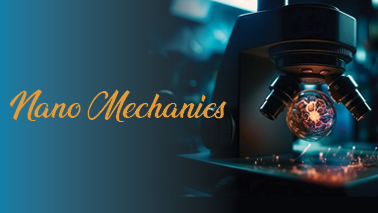
Nanomechanics is a subfield of nanoscience that investigates the fundamental mechanical aspects of physical systems at the nanoscale scale. Biophysics, classical mechanics, solid-state physics, statistical mechanics, materials science, and quantum chemistry all have interacted in nanomechanics. Nanomechanics is a branch of nanoscience that provides a scientific foundation for nanotechnology. Nanomachines, nanoparticles, nanopowders, nanowires, nanorods, nanoribbons, nanotubes, such as carbon nanotubes and boron nitride nanotubes, nanoshells, nanomembranes, nanocoatings, nanocomposite/nanostructured materials, nanomotors etc
Energy and momentum conservation principles
Variational Hamilton's principle
Symmetry principles
Market Analysis: Over the next five years, the global market for Nanomechanical Testing System is predicted to increase at a CAGR of nearly 5%, reaching million USD in 2025, up from million USD in 2021.
Tags
Nanoresearch Conferences
Nanotechnology Meetings 2025
Nanomaterials Conferences 2025
Nanotechnology Conferences 2025 USA
Nanoengineering Conferences
Nanomedicine Conferences 2025 Europe
Molecular Nanotechnology Conferences
Nanomaterials Conferences 2025 Europe
Nanomaterials Conferences
Nanoscience Conferences 2025 USA
Nanomedicine Conferences
Nanoscience Conferences 2025 Asia
Nanomedicine Conferences 2025 USA
Nanotechnology Conferences 2025
Nanomedicine Conferences 2025
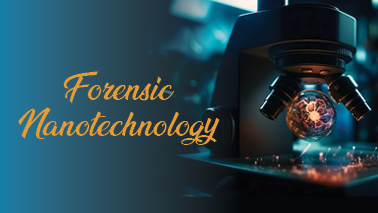
Identification, evaluation, investigation of the crime, and finding connections between pieces of evidence and criminals are all part of forensic science. Nano-forensics is a cutting-edge field of forensic science that involves the development of nano-sensors for crime investigations and terrorist activity inspections by detecting explosive gases, biological substances, and residues. Nano-analysis is widely used in the identification of crimes using nanotechnology. Scanning Electron Microscopy, Transmission Electron Microscopy, Atomic Force Microscopy, Dynamic Light Scattering, and Raman Microscopy are some of the techniques used in these analyses.
These techniques help forensic scientists in two ways:
1) by allowing them to evaluate nano-scaled samples
2) by allowing them to use the unique properties of nanomaterial to detect and collect evidence that was previously impossible.
DNA extraction from palm prints, fingerprints, gun residues, explosives, and heavy metals are just a few of the trying to cut techniques that can help forensic scientists produce conclusive evidence.
Forensic Toxicological Analysis
Forensic DNA Analysis
Forensic DNA Typing
Forensic Fingerprint Visualization
Forensic Explosive Detection
Post Blast Explosive Residues Analysis
Gunshot Residue Analysis
Market Analysis: The global market for forensic technologies and services, which was estimated to be worth US$48.8 billion in 2020, is expected to expand to US$77.8 billion by 2027, with a CAGR of 6.9% over the analysed period.
Tags
Nanomedicine Conferences
Nanomaterials Conferences
Nanotechnology Conferences 2025 Asia
Nanomedicine Conferences 2025 Europe
Nanomaterials Conferences 2025
Nanomedicine Conferences 2025
Nanoscience Conferences 2025
Nanomedicine Conferences 2025 USA
Molecular Nanotechnology Conferences
Nano Drug Delivery Conferences
Nanoscience Conferences 2025 Asia
Nanotechnology Conferences 2025 USA
Materialscience Conferences
Graphene Conferences
Nanotechnology Conferences 2025 Europe

When describing nanostructures, it's important to distinguish between the number of nanoscale dimensions in an object's volume. Nanofilms are very thin layers of material with thickness ranging from a fraction of a nanometer to several micrometres. They act as an atomic-thick barrier between the outside world and the vast majority of physicochemical processes. To make nanostructured films, magnetron sputtering from a suitable target material is commonly used. Films can be built up of simple materials, such as those produced by sputtering from a pure metal target like copper, or they can be made up of more complex elements.
Transmission Electron Microscopy
Scanning Electron Microscopy
Electron Backscatter Diffraction
Focused Ion Beam
Market Analysis: According to a recent analysis by Emergen Research, the global nanofilms market was valued at USD 2.06 billion in 2019 and is expected to approach USD 7.09 billion in revenue by 2027, with a CAGR of 16.6%.
Tags
Nanomedicine Conferences 2025 Europe
Materialscience Conferences
Nanomedicine Conferences 2025 Asia
Nanoresearch Conferences
Nanomedicine Conferences
Nanoscience Conferences 2025 USA
Nanotechnology Conferences 2025
Nano Drug Delivery Conferences
Graphene Conferences
Nanomaterials Conferences 2025 Asia
Nanotechnology Conferences 2025 USA
Nanoscience Conferences 2025 Europe
Nanoscience Conferences
Nanomaterials Conferences 2025 Europe
Nanomaterials Conferences 2025
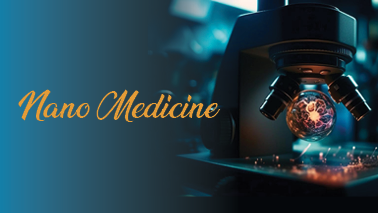
Nanomedicine is the use of nanotechnology in medicine. Nanomedicine includes everything from medicinal nanomaterials and biological devices to nanoelectronic biosensors and even future molecular nanotechnology applications such as biological machines. Nanomedicine's current problems involve evaluating the toxicity and environmental impact of nanoscale materials. Nanomedicine aims to provide such a useful collection of research tools and clinically relevant gadgets in a not future. New commercial uses in the pharmaceutical industry, according to the National Nanotechnology Initiative, might include enhanced drug delivery systems, new therapeutics, and in vivo imaging.
Implants
Drug Delivery
Antibacterial
Wearable Devices
Vaccine Development
Diagnosis and Imaging Tools
High-Throughput Screening Platforms
Market Analysis: Nanomedicine revenue reached $16 billion in 2015, with an average expenditure of $3.8 billion in nanotechnology research and development. In recent years, global spending for emerging nanotechnology has increased by 45 percent each year, with product sales exceeding $1 trillion in 2013.
Tags
Nanotechnology Conferences 2025
Nanotechnology Conferences 2025 Europe
Nanomaterials Conferences 2025 Europe
Nanomaterials Conferences 2025 USA
Nanomedicine Conferences
Nanotechnology Events 2025
Nanotechnology Conferences 2025
Nanomedicine Conferences 2025 Asia
Nanoscience Conferences 2025 USA
Nanoscience Conferences 2025 Asia
Nanoscience Conferences 2025
Nanotechnology Conferences
Nanomedicine Conferences 2025
Nanomaterials Conferences 2025 Asia
Nanotechnology Conferences 2025 Middle East
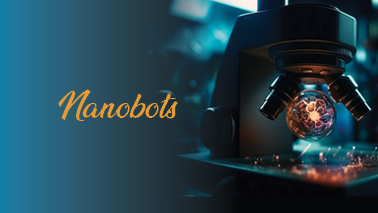
Nanobots, also known as nanorobots or nanomachines, are microscopic robots that are designed to perform a variety of tasks at the nanoscale, which is about one billionth of a meter. They have potential applications in a wide range of fields, including medicine, manufacturing, and environmental cleanup.
In the field of medicine, nanobots may be employed to deliver medications to certain bodily regions or to target and eliminate cancer cells.
Nanobots could be employed in manufacturing to assemble things at the atomic or molecular level or to manufacture complicated structures.
Additionally, nanobots could be used to clean up hazardous materials or to perform other types of environmental remediation.
Market Analysis: The global nanobots market size was valued at USD 5.3 billion in 2021 and is expected to hit around USD 21.45 billion by 2030, expected to register growth at a CAGR of 16.8% during the forecast period 2022 to 2030.
Tags
Nanotechnology Conferences 2025 Middle East
Nanomaterials Conferences 2025 Europe
Nanomaterials Conferences
Nanoscience Conferences
Nano Drug Delivery Conferences
Nanomaterials Conferences 2025 Asia
Nanoscience Conferences 2025 Europe
Nanomedicine Conferences 2025 USA
Molecular Nanotechnology Conferences
Nanotechnology Conferences 2025 Europe
Graphene Conferences
Nanomedicine Conferences 2025
Nanomaterials Conferences 2025 USA
Nanotechnology Meetings 2025
Nanotechnology Conferences 2025 Asia
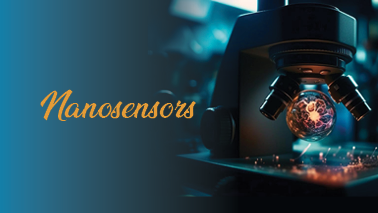
The need for nanosensors has increased during the last few decades on a global scale.
The nanosensor is a sensing tool used in nanotechnology to measure, detect, or sense the chemical and physical characteristics of materials or nanoparticles at a nanoscale smaller than 100 nm.
There are 3 types of Nanosensors,
Physical Nanosensors:
Measurement of changes in physical quantities, such as temperature, velocity, electric forces, etc.
Chemical Nanosensors:
Chemical nanosensors are used to detect various substances or chemical properties like pH level, Nanosensors are helpful for examining environmental pollutants or performing pharmacological analysis.
Biological Nanosensors:
Biosensors are able to precisely identify viruses, poisons, malignancies, and biomarkers in the fields of medicine and healthcare. They achieve this by translating chemical reactions into electrical or optical signals, and have the benefit of being able to measure only the exact things that are desired.
Market Analysis: The market for nanosensors was worth USD 441.91 million in 2020, and it is anticipated to grow to USD 8426.45 million by 2026, at a CAGR of 63.45% between 2021 and 2026.
Tags
Nanomaterials Conferences 2025 Asia
Nanotechnology Conferences
Nanomaterials Conferences
Nanotechnology Meetings 2025
Nanomaterials Conferences 2025 USA
Nanotechnology Conferences 2025 Europe
Nanotechnology Conferences 2025 Asia
Nano Drug Delivery Conferences
Nanotechnology Conferences 2025 USA
Molecular Nanotechnology Conferences
Graphene Conferences
Nanoscience Conferences 2025 Asia
Nanomedicine Conferences 2025
Nanomaterials Conferences 2025
Nanoscience Conferences 2025 Europe

Nano dentistry is a cutting-edge new technique that has achieved significant advancements in the field of dentistry and is the application of nanotechnology in dentistry. This technology is used in a number of novel dental products, including implants and oral hygiene items.
Oral and dental problems can be identified, treated, and prevented using nanotechnology in dentistry. Additionally, it can be utilised to reduce discomfort and maintain or enhance tooth health.
For instance, diagnostics based on saliva exosomes have enabled surgeons to create biocompatible, antibacterial dental implants, a breakthrough in the industry. It makes logical to attack a disease at the molecular level because every sickness begins there.
Dental researchers are also investigating additional uses, including as:
• Endodontic therapy
• Preventing dental decay
• Integration with dental implants
• Treating periodontal disease
• Screws for bone fixation
• Direct pulp-capping procedures
• Dentin regeneration
• Enhanced bone regeneration
• Producing artificial mucosa, etc.
Market Analysis: The size of the global nanodentistry market was estimated at USD 838.53 million in 2022, and it is anticipated to increase at a CAGR of 10.2% from 2023 to 2030.
Tags
Nanotechnology Meetings 2025
Nanotechnology Conferences 2025
Nanomedicine Conferences 2025 USA
Nano Drug Delivery Conferences
Nanoscience Conferences 2025
Nanoscience Conferences 2025 Asia
Graphene Conferences
Nanomaterials Conferences 2025
Nanomedicine Conferences 2025 Asia
Nanomaterials Conferences
Nanotechnology Conferences 2025 Middle East
Nanotechnology Conferences
Nanotechnology Conferences 2025
Molecular Nanotechnology Conferences
Nanoscience Conferences 2025 USA

Nanoscience and nanotechnology are moving towards new frontiers and the design and fabrication of self-healing materials is one of the future challenges.
Self-healing materials have great potential for advanced engineering systems, and these types of systems respond without external intervention to environmental stimuli in a nonlinear and productive fashion. Self-healing materials find applications in various fields such as biomedical, electronic, and coatings due to its exceptional properties.
Also, self-healing is helpful for extending the life of materials, but it is especially helpful in situations when human intervention is difficult, such as in space applications, or when there are difficult physical and chemical conditions present.
Over the last decade, self-healing technology and its science have been developed into:
• New polymers
• Polymer blends
• Polymer composites
• Smart materials with self-healing capabilities.
Market Analysis: The global self-healing materials market size was valued at USD 1.28 billion in 2021 and is expected to expand at (CAGR) of 25.5% from 2022 to 2030.
Tags
Nanomaterials Conferences 2025 Asia
Nanotechnology Conferences 2025 USA
Nanomedicine Conferences 2025 Asia
Nanomaterials Conferences 2025 Europe
Graphene Conferences
Nanomedicine Conferences 2025 USA
Nanomaterials Conferences
Nanoengineering Conferences
Nanomaterials Conferences 2025 USA
Nanotechnology Conferences 2025 Asia
Nanotechnology Conferences 2025
Nanoresearch Conferences
Nanotechnology Meetings 2025
Nanotechnology Conferences
Nanomedicine Conferences
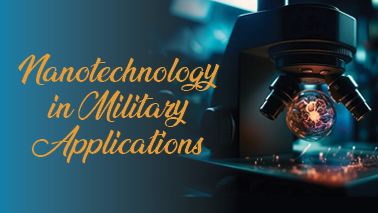
As with most new technologies, however, military applications of nanotechnology are likely to be the first to be realized. The main aims of military research into nanotechnology are to improve medical and casualty care for soldiers, and to produce lightweight, strong and multi-functional materials for use in clothing, both for protection and to provide enhanced connectivity.
Potential Military Applications:
• Improving army medical and casualty care. For instance, certain nanoparticles coated on wound dressings enable controlled release of medications and proteins for a predetermined amount of time, which eventually speeds up the healing process.
• The creation of materials that is robust, lightweight, and multipurpose for use in military apparel that improves connectivity while also providing improved protection.
• Improvement of military intelligence through the use of smart sensor technologies that incorporate neural networks and nanosensors.
• The nature and scope of the possible risk when explosives are detected, damage to military equipment, toxic chemicals and biological weapons, and more can all be detected using nano-sensors.
Market Analysis: The global military wearables market is projected to grow from USD 3.1 billion in 2022 to USD 3.4 billion by 2027, at a CAGR of 1.8% from 2022 to 2027.
Tags
Graphene Conferences
Nanotechnology Conferences 2025 USA
Nanoscience Conferences 2025 Asia
Nanoengineering Conferences
Nanomaterials Conferences 2025 Europe
Nanotechnology Conferences 2025 Middle East
Nanoresearch Conferences
Nano Drug Delivery Conferences
Nanotechnology Conferences 2025 Europe
Molecular Nanotechnology Conferences
Nanotechnology Conferences 2025
Nanotechnology Conferences 2025
Nanomedicine Conferences 2025
Nanotechnology Conferences
Nanomaterials Conferences 2025
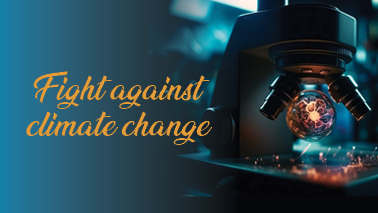
Global warming and the maintenance of climatic changes are two major uses of nanotechnology. It has proven to be a powerful and useful tool for preserving the environment, protecting it from harm, and achieving the goal of maintaining the environment pollutant-free. It is in fact proven to be a beneficial weapon for the entire human race.
The effectiveness of current technologies is being significantly improved through nanotechnology. By developing new clean technologies with the use of nanoproducts and nanomanufacturing, the most recent concept in green nanotechnology aims to eliminate potential threats to human health and the environment.
Additionally, it's important to design and create new, environmentally and human-friendly nanoproducts to replace the outdated ones.
Market Analysis: The global climate tech market size totaled ~US$ 13.8 Billion in 2021. The market is expected to reach ~US$ 147.5 Billion by 2032, growing at a CAGR of 24.2% from 2022 – 2032.
Tags
Nanoscience Conferences 2025 Asia
Nanotechnology Conferences 2025
Nanoresearch Conferences
Nanotechnology Conferences
Nanotechnology Events 2025
Nanomedicine Conferences 2025
Nanotechnology Conferences 2025 Europe
Nanoengineering Conferences
Nanoscience Conferences
Nano Drug Delivery Conferences
Nanomedicine Conferences
Nanoscience Conferences 2025 Europe
Nanomedicine Conferences 2025 Asia
Nanotechnology Conferences 2025 Asia
Nanotechnology Conferences 2025 Middle East

In the current-generation wireless systems, there is a huge requirement on integrating big data which can able to predict the market trends of all application systems. Therefore, the proposed method emphasizes on the integration of nanosensors with big data analysis which will be used in healthcare applications.
When compared to conventional networks, nanoparticles have the ability to store enormous amounts of data, which is one of their key characteristics. Additionally, while nanotechnology has a large surface area for interacting with various materials, if there is a blockage, materials cannot interact with their surroundings.
However, only the surface of a material can interact with other materials, opening up new prospects in the medical area for system on chip-enabled technologies that can reduce damage to bodily tissues. These nanosensors also have the wonderful advantage of being stretchable, bendable, and flexible, making it simple to integrate them into Internet of Things applications.
Market Analysis: The global big data technology market size was $41.33 billion in 2019 & is projected to reach $116.07 billion by 2027, at a CAGR of 14.0% in forecast period.
Tags
Molecular Nanotechnology Conferences
Nanoscience Conferences 2025
Nanotechnology Conferences
Nanoscience Conferences
Nanoscience Conferences 2025 Europe
Nanomaterials Conferences 2025
Graphene Conferences
Nanotechnology Events 2025
Nanotechnology Conferences 2025
Nanotechnology Conferences 2025 Middle East
Nanomedicine Conferences 2025 USA
Nanomaterials Conferences
Nanomaterials Conferences 2025 Asia
Nanoresearch Conferences
Nanotechnology Conferences 2025
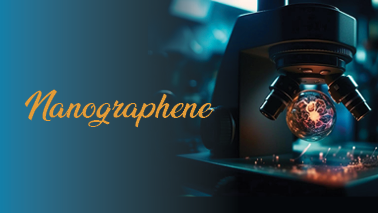
With recent advances in nanotechnology, graphene nanomaterials are being translated to applications in the fields of bio sensing, medicine, and diagnostics, with unprecedented power.Since graphene is just a single layer of carbon atoms connected in a hexagonal pattern, it is also extremely thin and lightweight and an attractive material for nanotechnology applications.
The properties of graphene are very unusual which makes it a more exciting material in the field of material science:
• Chemically inert.
• It is a superconductor of electricity.
• Up to 20% of its length can be stretched.
• It can endlessly bend without breaking.
• Nontoxic.
• Compared to steel, it is 200 times stronger and 6 times lighter.
So, Future graphene-based technologies have a tonne of potential, including flexible solar cells for energy production and flexible screens for smartphones. Due to its exceptional aqueous process ability and other useful surface properties.
Market Analysis: The global graphene market is projected to grow from $337.0 million in 2022 to $2,172.2 million by 2029, at a CAGR of 30.5% in the forecast period, 2022-2029.
Tags
Nanotechnology Events 2025
Nanoscience Conferences 2025
Nanomedicine Conferences 2025 USA
Nanomaterials Conferences 2025 Asia
Nanomedicine Conferences
Graphene Conferences
Nanomedicine Conferences 2025 Asia
Molecular Nanotechnology Conferences
Nanoscience Conferences 2025 Europe
Nanoscience Conferences
Nanotechnology Conferences
Nanomaterials Conferences 2025
Nanomaterials Conferences
Nanomedicine Conferences 2025
Nanoscience Conferences 2025 USA
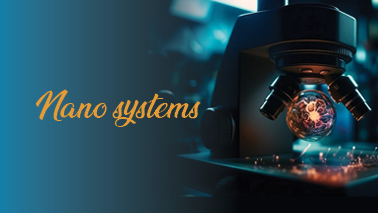
The potential that nanoscience provides for the future is arguably what makes it so intriguing. The next step in realising this science fiction world that we have all imagined is nano-systems. In essence, nano-systems entail the self-assembly of nano-factories or machines that can produce goods at the atomic scale and can collaborate with other nanoparticles and machines to form complex molecular structures for a variety of uses.
For example, we could create nano-systems that could make synthetic materials on their own. This procedure offers clear advantages for the ecology and climate because it utilises carbon dioxide from the air in addition to using fewer fossil fuels. Self-healing buildings, disaster-proof constructions, safety gear, etc. are additional potential applications.
Market Anylasis: Nano-Systems Market was valued at USD 83.95 Billion in 2021, and it is expected to reach USD 672.27 Billion by 2029, exhibiting a CAGR of 29.7 % during the forecast period (2022-2029)
Tags
Nanotechnology Conferences
Nanomaterials Conferences 2025 USA
Nanoscience Conferences 2025
Nanotechnology Conferences 2025
Nanoscience Conferences 2025 Asia
Materialscience Conferences
Nanotechnology Conferences 2025 USA
Nanoengineering Conferences
Nanoscience Conferences 2025 Europe
Nanomaterials Conferences 2025
Nanotechnology Conferences 2025
Nanoscience Conferences
Nanomaterials Conferences 2025 Asia
Nanomedicine Conferences 2025 USA
Nanotechnology Events 2025
Nanotechnology is a rapidly advancing field with applications across sectors such as healthcare, pharmaceuticals, electronics, energy, and transportation. This technology is revolutionizing industries globally and attracting significant attention. As it continues to develop, the business world has a great opportunity to capitalize on this fast-growing market, which is poised to generate substantial revenue as commercialization expands.
The global nanotechnology market is expected to see substantial growth, with its value rising from USD 8.78 billion in 2025 to USD 115.41 billion by 2034, at a CAGR of 33.14%. This market is divided into three primary segments: Nanomaterials, Nano tools, and Nano devices. The Nanomaterials segment alone was valued at USD 16.75 billion in 2024, projected to reach USD 19.16 billion in 2025, reflecting a CAGR of 14.4%.
In addition, the Nano tools and Nano devices segments are expected to contribute significantly to this growth, driving the overall expansion of the nanotechnology market. These trends emphasize the rapid advancements and growing commercialization of nanotechnology across various industries.
In the Middle East, the nanotechnology market is projected to grow at a CAGR of 13.28%, particularly in energy applications, further highlighting the global potential of this technology.
Market Insights of Nanotechnology in Europe:
The European nanotechnology market is poised for significant growth, driven by the use of nanomaterials in energy storage, establishing Europe as a global leader. Key growth drivers include industrial expansion, government support, and growing demand for advanced electronics and medical devices, with Germany and the UK at the forefront of innovation.
Recent market reports indicate that the European nanotechnology market is projected to grow at a CAGR of approximately 11.7% between 2024 and 2030, with a strong emphasis on the use of titanium (Ti) nanomaterials, which are expected to be the primary revenue driver in the region.
Major sectors driving this growth include energy, electronics, and healthcare, with trends emphasizing sustainability, advanced manufacturing, and safety assessments. Strong research infrastructure and EU policies further accelerate market expansion, alongside rising consumer interest in nanotechnology-based products.
Market Insights of Nanotechnology in Asia-Pacific:
The Asia-Pacific region is the world’s fastest-growing nanotechnology market, with growth expected to continue due to rising investments in research and development, along with increasing demand for nanomaterials across key industries.
The Asia-Pacific nanotechnology market is projected to grow at a CAGR of 16.97% between 2025 and 2034, while the nanotechnology market in India is anticipated to expand at a CAGR of 19.0% from 2024 to 2030.
The nanotechnology market in the Middle East is projected to grow at a CAGR of 13.28%, driven by rapid adoption across industries like healthcare, electronics, and energy. With the region's dependence on fossil fuels, there is increased focus on nanotechnology for energy applications such as solar panels and energy storage.
The nanosensor market is also expected to see strong growth. However, challenges like regulatory frameworks, environmental concerns, and limited access to advanced manufacturing may affect overall market growth.
Market Insights of Nanotechnology in Middle East:
The region is witnessing rapid adoption of nanotechnology across industries such as healthcare, electronics, and energy, driving substantial growth. Due to its reliance on fossil fuels, there is a strong focus on nanotechnology for solar panels and energy storage. The nanosensor market is also set for significant growth, highlighting advancements in sensor technology. However, challenges like regulatory frameworks, environmental concerns, and limited access to advanced manufacturing capabilities may influence the market’s overall development.
The global nanotechnology market is expected to grow significantly, from USD 8.78 billion in 2025 to USD 115.41 billion by 2034, at a CAGR of 33.14%. In the Middle East, the market is projected to grow at a CAGR of 13.28%, with notable potential in energy applications.
Target Audience:
Material Engineers, Chemical Engineers, Pharmacists, Pharmaceutical Companies and Markets, Business Delegates, Medicine and Pharmaceuticals, Nanotechnology Professionals, Healthcare professionals, Directors of companies, Pharmaceutical Industrialist, Nanomedicine and nanotechnology associations and societies, Clinical investigators, Material Chemists, Material Science Researchers, Nano-Scientists, Students from Nanotechnology, Chemical and Material Engineering.
Socities:
Usa
National Cancer Institute / American Society for Precision Engineering (ASPE) / Alliance for Nanotechnology in Cancer / Graphene Stakeholders Association (GSA) / National Institutes of Health / International Association of Nanotechnology (IANT) / Nanomedicine Roadmap Initiative / Semiconductor Industry Association (SIA) / American National Standards Institute Nanotechnology Panel (ANSI-NSP) / Materials Research Society / International Association of Nanotechnology / American Nano Society / Nanotechnology and Nanoscience Student Association / American Association for the Advancement of Science / American Academy of Nanomedicine / Alliance for Nanotechnology in Cancer / Brazilian Nanotechnology National Laboratory / American Chemical Society - Nanotechnology Safety Resources / International Organization of Materials / Nano Science and Technology Institute / NanoBusiness Commercialization Association / NanoBusiness Alliance / Nanotechnology and Nanoscience Student Association (NANSA) / National Nanotechnology Initiative / American Nano society / Metals and Minerals Societies / Society for Advancement of Material and process Engineering / American Composites Manufacturers Association / Brazilian Composites Materials Association / Canadian Biomaterials Society / American Institute of Aeronautics and Astronautics (AIAA) / American National Standards Institute Nanotechnology Panel / Instituto Zuliano de Investigaciones Tecnológicas / American Physical Society / Canadian NanoBusiness Alliance / National Nanotechnology Initiative / American Chemical Society [ACS] / American Institute of Physics.
Europe
Erwin Schrödinger Society for Nano medicines | Nano medicine Conference 2020 | Nano Tech Conference 2020 | Royal Society - Nanotechnology and Nano medicine | Nanoscale Science & Nanotechnology Group | International Union of Crystallography / European Nanoscience and Nanotechnology Association (ENNA) / German Association of Nanotechnology / Nanotechnology Industries Association / The Institute of Nanotechnology (IN) / Nanotechnology Industries Association (NIA) / Russian Society of Scanning Probe Microscopy and Nanotechnology / Society of Nanoscience and Nanotechnology / Federation of Materials Societies / Society for Biomaterials / Federation of European Materials Societies / European Society for Precision Engineering and Nanotechnology / Semiconductor Industry Association / Collaborative Centre for Applied Nanotechnology / James Watt Nanofabrication Centre / Southampton Nanofabrication Centre / European Society for Precision Engineering and Nanotechnology / Nanotechnology Industries Association / DTU Nanotech Department of Micro and Nanotechnology / London Centre for Nanotechnology | Nano Technology Research Association | European Nano medicine and Nanotechnology Association (ENNA) | German Association of Nanotechnology | Nanotechnology Industries Association.
Asia
Nano Science and Technology Consortium | Nano Tech Conference 2020 | National Centre for Nano medicine and Technology | Asia Science and Technology Agency | National Nanotechnology Center / National Nanotechnology Directorate / National Nanotechnology Initiative / National Center for Nanoscience and Technology / Japan Science and Technology Agency / Nanoscience & Nanotechnology / ASPEN-Asian society of precision engineering and nanotechology / The International Association of Nanotechnology (IANT) / National Institutes of Health / Society of Materials Science / Japan Society for Composite Materials / Australasian Society for Biomaterials and Tissue Engineering / Australasian Ceramic Society / Materials Research Society / National Centre for Nanoscience and Technology / National Nanotechnology Center | National Nanotechnology Directorate | National Nanotechnology Initiative / National Nanotechnology Centre | Asian Nano medicine and Nanotechnology Association (ANNA) | Nano Technology Research Association (NTRA) South Korea | Alliance for Nanotechnology in Cancer.
Middle East
Iranian Nanotechnology Laboratory Network / Iran Nanotechnology Initiative Council / Israel Vacuum Society / Egypt Nanotechnology Center (EGNC) / Center for Nanotechnology (CNT) / NBE Institute for Nanoscience and Informatics (INI) / Yousef Jameel Science and Technology Research Center / Naqaa Nanotechnology Network (NNN) / Technology and Development / Tel Aviv University Center for Nanoscience and Nanotechnology / Nanofabrication Core Lab / Nano-Biomedicine & Imaging Laboratory / Materials Science and Nanotechnology / National Nanotechnology Research Center / Nanotechnology and Nanomedicine.
List of Journals:
Nature Nanotechnology / International Journal of Nanomedicine / Nanomedicine / Nanoscale Research Letters / Journal of Nanoscience and Nanotechnology / Journal of Nanoparticle Research / Nano / Journal of Biomedical Nanotechnology / Nanotechnology / Advanced Materials / Beilstein Journal of Nanotechnology / The Journal of Physical Chemistry C / Nano Research / Nano Letters / ACS Nano / Nanoscale / Small / Nano Today / International Journal of Nanoscience / Journal of Experimental Nanoscience / Lab on a Chip / Biomedical Microdevices / Proceedings of the Institution of Mechanical Engineers / International Journal of Nanomedicine / Journal of Materials Science / Journal of Nanoscience and Nanotechnology / International Journal of Nanoscience / Journal of Nanoparticle Research / Journal of Experimental Nanoscience / Journal of Biomedical Nanotechnology / Carbon / Nanotechnology Law & Business / Journal of Sol-Gel Science and Technology / ACS Photonics / Journal of Cluster Science / Lab on a Chip / Photonics and Nanostructures: Fundamentals and Applications / Journal of Nanoparticle Research / Journal of the American Chemical Society / Langmuir / ACS Nano / Chemistry of Materials / ACS Applied Materials & Interfaces / Journal of Applied Physics / Theranostics / Journal of Experimental Nanoscience / Futures / Nature / Energy / Nanotoxicology / Biomedical Microdevices / Biotechnology Journal / Optical Materials / Scripta Materialia / Acta Biomaterialia / Materials Horizons / Journal of Materials Chemistry / Journal of Alloys and Compounds / Bulletin of Materials Science / Journal of Composite Materials / Journal of Materials Research and Technology / Journal of Materials Science / Materials in Medicine Science and Technology / Advanced Materials / Materials Today / Progress in Materials Science / Computational Materials Science / Materials Science and Engineering.
List of Universities:
Usa
Arizona State University / Johns Hopkins University / Joint School of Nanoscience and Nanoengineering / Louisiana Tech University / North Carolina State University / North Dakota State University / Radiological Technologies University VT / Rice University / Singapore-MIT Alliance / Stevens Institute of Technology / SUNY Polytechnic Institute / University of Albany / University of California, Riverside / University of California, San Diego / University of Central Florida / University of New Mexico / University of Pennsylvania / University of South Florida / University of Texas at Austin / University of Buffalo / Virginia Commonwealth university / University of New Mexico / University of North Carolina / INTO University of South Florida / Harvard University / Pennsylvania state university / University of Utah / Wayne state university / University of Denver / University of Connecticut / Stony Brook university / University of Wisconsin-stout / Northwest Missouri state university / Louisiana Tech university / Millersville university
Europe
University of Cambridge / Eth-zurich university / University of oxford / Politecnico Di Milano University / Delft University of Technology / Technical University of Denmark / University of Manchester / University college London / University of Southampton / Bangor University / University of Central Lancashire / University of Glasgow / Lancaster University / New castle University / Nottingham Trent University / University of Strathclyde / University of Surrey / Swansea University / Aalto University / Aarhus University / University of Bristol / Chalmers University of Technology / University of Erlangen-Nurnberg / National University of Science and Technology / Queen Mary University of London / University of Valencia / UCL(University college London) / National Technical University of Athens / University of Groningen / Peoples Friendship University of Russia.
Asia
VIT University / Srinivas Institute of Technology / Desh Bhagat University / Tezpur Central University / Central University of Jharkhand / Jawaharlal Nehru Technological University / Sam Higginbottom Institute of Agriculture, Technology and Sciences / Jawaharlal Nehru Technological University College of Engineering Sultanpur / University of Madras, National Centre for Nanoscience and Nanotechnology / SASTRA University / Nano Science and Technology Consortium / Bhagwant University / Maharaja Sayajirao University of Baroda / Anna University Chennai / Noorul Islam College of Engineering / Bharathiar University / Iran university of science & technology / Sharif University of Technology / Tarbiat Modares University / Amirkabir University of Technology / Bar Ilan University Institute of Nanotechnology & Advanced Materials / Technion Russell Berrie Nanotechnology Institute (RBNI) / Tel Aviv University Center for Nanoscience and Nanotechnology / Hong Kong University of Science and Technology / University of the Punjab / National University of Science & Technology / University of Sind / National University of Singapore / Chulalongkorn University / Mahidol University / Kasetsart University / Center of Excellence in Nanotechnology at AIT / College of Nanotechnology at KMITL / University Putra Malaysia / Malaysia Multimedia University / Malaysia University of Science & Technology / Sri Lanka Institute of Nanotechnology (SLINTEC) / Tohoku University / Kyoto University
Middle East
Khalifa University / Ras Al Khaimah Center for Advanced Materials (RAK CAM) / Masdar Institute of Science and Technology United Arab Emirates University / Alfaisal University / Sharif University of Technology / Institute for Research in Fundamental Sciences / Middle e tech university / Bilkent university / Hacettepe university / Istanbul tech university / Dokuz eylul university / Ankara university / Gebze inst technol / Cumhuriyet university / Gazi university / Ege university / Ondokuz mayis university / Selcuk university / Anadolu university / Auleyman demirel university / Koc university / Nile University / United Arab Emirates University.
List of Companies:
Usa
10 Angstroms / 3D Systems / 3DIcon / 3DM / 4Wave / A & A Company / Abeam Technologies / Accelergy ACS Material / ADA Technologies / Advanced Diamond Technologies / Advanced Nano-Coatings / Advanced Optical Technologies / Advanced Research Systems / Agilent Technologies / XiGo Nanotools / Xitronix / Xtalic / Zikon / Z-Medica / XG Sciences / X-Ray Optical Systems / Vista Therapeutics / Vorbeck Materials / Versilant Nanotechnologies / Vampire Optical Coatings / US Photonics / Ultramet Advanced Materials Solutions / Triton Systems / Surface Combustion / Surface Technology / SurModics / Synopsis / TDA Research / Texas Biochemicals / Thermo Scientific / Trion Technology / Solar Botanic / Sono-Tek Corporation / Soundwave Research Laboratories / Specs Technologies Corporation / Stainless Design Concepts / Structured Materials Industries / Sumitomo Electric USA / Renishaw / Research Facilities Design / Resonetics / Rexahn Pharmaceuticals / Rudolph Technologies / Salvona Technologies / Savara Pharmaceuticals / Selecta Biosciences / Semicore Equipment / Protochips / PSI Physical Sciences Inc. / Q Sonica / Quanta chrome Instruments / Quanterix / Quantum Composers / Quantum Polymers / QuarTek Corporation / Radiation Shield Technologies / Poly Microspheres / Poly sciences / Porter Wright Morris & Arthur / PPG Industries / Presto Engineering / Nyacol Nanotechnologies, Inc. / Ocean Nano Tech / Optical Dynamics / Pacific Biosciences / Pall Corporation / Parabon NanoLabs / Omnetics / New Scale Technologies / Nikon Metrology / Norsam Technologies / NVE Corporation.
Europe
Applied Nanolayers / Aquamarijn Micro Filtration / ASM International / ASML / Avantes / Avantium / Catena / ChemConnection / CPS Instruments Europe / DELMIC / DSM Somos / GraphenTech / HQ Graphene / IME Technologies / Kriya Materials / Lenntech Water Treatment & Air Purification / Malsch TechnoValuation / Malvern Panalytical / Micronit / MS MacroSystem / Nanosens / NXP / SACHEM / SmartTip / VSParticle / Nanoident / Metcomb Nanostructures / Ablynx / Nanocyl / it4ip / Nanon A/S / Amroy / Nanocomp / Memscap / Nanoledge / Minatec Innovation Center / Nanopolis / Kerdry / Flamel Technologies / INPT / Baytubes / Amica / Ormecon / Capsulution NanoScience AG / agForce Nanotechnologies AG / SuNyx / Aquanova German Solubilisate Technologies GmbH / SusTech Darmstadt /NSC-Nanosemiconductor-GmbH / NanoFocus / Henkel / NanoCraft / AlCove Surfaces / Percenta Europe Ltd / Genthe -X- Coatings / Degussa Advanced Nanomaterials / Nanopool / Starnberger / BASF / NanoPharm / PlasmaChem / NanoScape / nanotype / Süd-Chemie / SUSS MicroTec / NaWoTec / ItN Nanovation / Nanogate Technologies GmbH / Nano-X / Nano Tech Coatings / Cool Chips / Acrongenomics / Nanothinx / Thales Nanotechnology / Nanocomms / Allegro Technologies / Elan Drug Delivery / Ntera / Mechanomade® Ball Milled Nanophased Materials (MBN) / AMT Coatings / Aktina Limited / Labein / CMP Científica / Nanofreeze / QuNano AB / Obducat / NanoLight / NanoSurf / Colibrys / Swiss Center for Electronics and Microtechnology / IBM Zurich / Schoeller NanoSphere / Mimotec SA / NanoMagnetics Ltd / Accelrys / Plastic Logic / Thomas Swan & Co. / Kelvin Nanotechnology / iCurie Lab Holdings / JR Nanotech / Nanoco / Nanoco Technologies / Orla Protein Technologies / Oxford Nanotechnology.
Asia
Beijing Nano Sunshine Technology Co. Ltd / Advanced BatteryTechnologies / Zhangyuan Tungsten Co. / Chengyin Technology / Shenzhen JINGANGYUAN New Material / Shenzhen Nanotech Port Co / Genesis Nanotech Corporation / Nano-Infinity Nanotech Co. / Nano Superlattice Technology / Asia Pacific Fuel Cell Technologies / 21st Century NanoTechnologies / Qtech Nanosystems / Velbionanotech / United Nanotechnologies / Admatechs / NanoCarrier / Fullerene International Corporation (FIC) / Alnair Labs / Asahi Glass Co. / Carbon Nanotech Research Institute / Frontier Carbon Corporation / Hitachi High-Technologies / Mitsui & Co., Ltd. Nanotechnology Department XNRI Group / Nanoten / Advanced Nano Products / Advanced Nano Technologies / ILJIN Nanotech / Nanogist / NanoMetalGlobal / Nanotech / Samsung / Hyosung Group / Arc Flash Corporation / nanopac / Chartered Semiconductor Manufacturing / NanoMaterials Technology.
MIddle East
NutraLease / Sol-Gel Technologies / Nanolayers / Nano-Size / SoluBest / Docoop Technologies / R&D for ApNano Materials / Kilopico / Nano Vahed Sanat (Nano 1) / Nanotechnology Systems Corporation (NATSYCO) / Payamavaran Nanotechnology Fardanegar (PNF) / Aposense / El-Mul Technologies / Melodea / Nano Dimension / Nano Retina / Nanonics Imaging / Nicast / Nova Measuring Instruments / Qlight Nanotech / Sol-Gel Technologies / SP Nano / StoreDot / Valentis Nanotech / Saudi Environmental Projects Company Ltd. (SEPEC) / Saudi Aramco / Silicon Valley for Nanotechnology / Entekno / Grafen Chemical Industries / Inovenso / Nanografen / Nanografi.
Contact us now and we will make your event unique & unforgettable
All numbers indicates percentage %
Europe
North America
Middle East
Asia Pacific
Africa
All numbers indicates percentage %
Nanotechnology Professionals
Faculty, Colleges
Materials Science Engineers
Physicists and Chemists
Researchers & Students
Pharmaceutical Industries
Leading Scientists
Chemical-Nano-Materials Companies

The snATAC + snRNA platform allows epigenomic profiling of open chromatin and gene expression with single-cell resolution. The most critical assay step is to isolate high-quality nuclei to proceed with droplet-base single nuclei isolation and barcoding. With the increasing popularity of multiomic profiling in various fields, the

Sodium ion batteries (NIB) are a potential alternatively for Lithium ion batteries (LIB) because of lower cost and more abundance. As anodes, Hard Carbon (HC) seems to be the most promising candidate for NIB with advantages: stable cycling, large specific capacity, and lowcost precursors. Previous theoretical researches studied

Capillary electrophoresis (CE) was set up with laser-induced fluorescence (LIF) detection for the analysis of fluorescent dyes ranging from coumarin to rhodamine B and rhodamine 6G. These aromatic dyes interacted with transition metal oxide nanoparticles (TMONPs) and polystyrene nanoplastics present in a water sample, prior to C

Background: Radiotherapy is a highly effective treatment for cervical cancer. Recent studies focused on the radiotherapy induced anti-tumor immunity. Whether tumor-derived extracellular vesicles (EVs) play roles in radiotherapy induced tumor associated macrophage (TAM) polarization remains unclear. Aim: To study whether EV med

Photocatalysis is an effective technology for preventing the spread of pandemic-scale viruses. This paper reports an efficient visible light-sensitive photocatalyst, i.e., copper oxide nanoclusters grafted titanium dioxide (CuxO/TiO2) towards the anti-virus function. Figure 1 (a) shows the TEM image of CuxO/TiO2. The CuxO nanocl

Gold nanoparticles (AuNPs) combine beauty with functionality, exhibiting unique properties due to their size and shape, and displaying vibrant colors in red and purple hues. Their exceptional stability and biocompatibility make them ideal for medical imaging, targeted drug delivery, fuel cells, or chemical catalysis. Nitrophen

Automatic detection and classification of road damages are critical for the timely maintenance and repair of road surfaces. To address issues in road damage detection, such as single detection type, low detection efficiency, low-resolution detection objects, and difficulty in detecting small target features, this paper proposes

In this work, a new kind of fullerene solid is constructed using carbon cluster C50 with D5h symmetry. It is found that this solid is softer than the diamond through the comparision of bulk modulus. This new type of semiconductor has the indirect band gap of 0.338 eV. The stability of this solid is further confirmed by the

In this study, we investigated concentrations of lung-deposited surface area (LDSA), elemental carbon (EC), organic carbon (OC), and particle number concentration (PNC) in Los Angeles. Hourly data were gathered using Discmini and Scanning Mobility Particle Sizer (SMPS) for PNC and LDSA, while OC, OC volatility fractions, and EC


